

Approaching


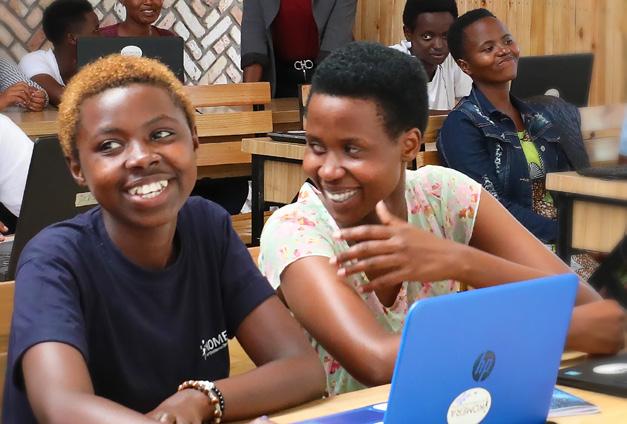








Approaching








It is with great pleasure and deep gratitude that we present the 2021-22 biennial report of The Rainwater Charitable Foundation (RCF). We are honored to share with you the progress and impact that we have achieved together over the past two years, as well as the challenges that persist in our efforts.
Our mission has always been to make a meaningful difference in the areas where we focus, namely helping children thrive in today’s world and finding a cure for neurodegenerative tauopathies. Guided by the vision and approach of Richard Rainwater, we remain steadfast in our commitment to addressing complex challenges in partnership with diverse leaders and experts in the field.
We chose “Reflecting Back...Investing Forward” as the theme of this report because it aptly describes how we’ve spent much of the last two years. Both the COVID-19 pandemic and the foundation’s 30th anniversary in 2021 presented opportunities for us to step back and consider both our mission and the ways we work to achieve it. The result has been redoubling our commitment to promoting child well-being and finding treatments for neurodegenerative disease, while seeking to innovate on ways to accomplish these goals.
In education, we have continued to invest in schools and initiatives that empower and equip students (and their families) with the knowledge and skills they need to shape a better future. We continue to innovate on a broader
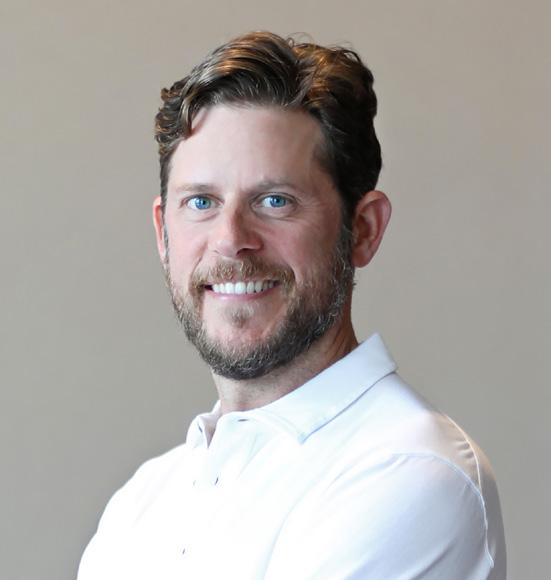
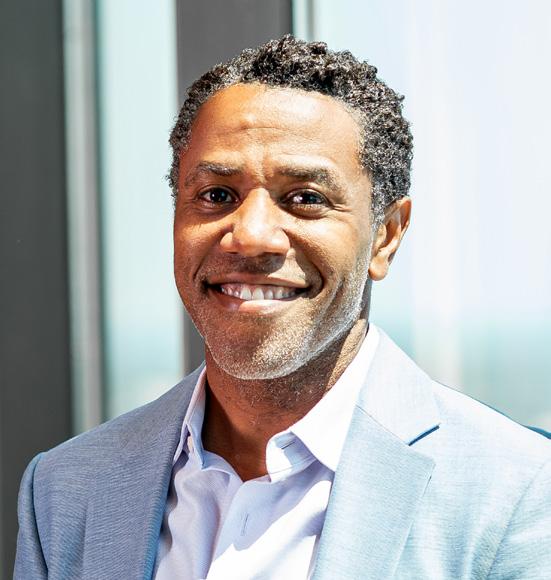
range of investments that work in concert with education investments to address child well-being more fully. Our current approach emphasizes family economic security factors such as increased income, workforce housing, and more expansive child care.
In medical research, we resumed in-person gatherings after a two-year pause and held the Rainwater Prize Ceremony internationally for the first time. We launched new drug discovery partnerships that take promising basic research out of the lab and into translation-focused drug discovery institutes. We hosted our first clinical trial readiness workshop, generating insights that we hope will help all neurodegenerative clinical trials in the field.
None of our accomplishments would have been possible without the incredible dedication of the organizations we support, including staff, volunteers, and policymakers working together to scale their impact. We also give special thanks to the generous individuals and other foundations who have funded alongside us in this work. Together, we have made a tangible impact on the lives of countless individuals and communities, and for that, we are truly grateful.
As we look ahead to the future, we are excited about the possibilities that lie before us. We remain committed to pursuing our mission with even greater determination and to seeking out new opportunities to create lasting change. We invite you to join us on this journey and be part of our efforts to make a difference in the world.
Thank you for your continued trust, support, and partnership. Together, we will continue to reflect on what’s working and to find innovative ways to invest forward for greater impact.


Since Richard Rainwater founded RCF over 30 years ago, our core mission has been to support children, primarily in the US, to ensure they have the resources and opportunity needed to thrive in today’s world. Believing that quality education is essential for a child’s well-being and ultimate success, we have focused much of our funding over the last 20 years on schools as the primary lever of change.
Of course, education alone does not ensure success. Over the past two years, we have been exploring how we may positively impact family economic security, another consideration that plays a vital role in a child’s well-being. Economic security factors such as household income, family-owned assets, parental education, and employment status are highly correlated to increased child well-being.
Numerous other interconnected factors influence a child’s well-being and future success, including health and access to health care, positive social support structures, and exposure to diverse, safe, and constructive environments. It’s clear that
increasing a family’s access to resources, opportunities, and career pathways ultimately affects all the other important areas in a child’s development.
Through learning and reflection over the past two years, we have expanded our goals to encompass education (expanding high-quality learning seats), upskilling (increasing the number of people who have post-secondary credentials), housing (increasing the stock of affordable housing and access to homeownership), and child care (decreasing the cost and increasing the quantity of high-quality early learning seats).
In summary, we remain steadfastly focused on children and families. We are grateful for the many community members and nonprofits who give their time, expertise, and resources to support students and their families. We are eager to work alongside community partners to implement transformative practices that promote lasting change for children. We look forward to refining how we support schools and making more commitments in the areas of family economic security going forward.
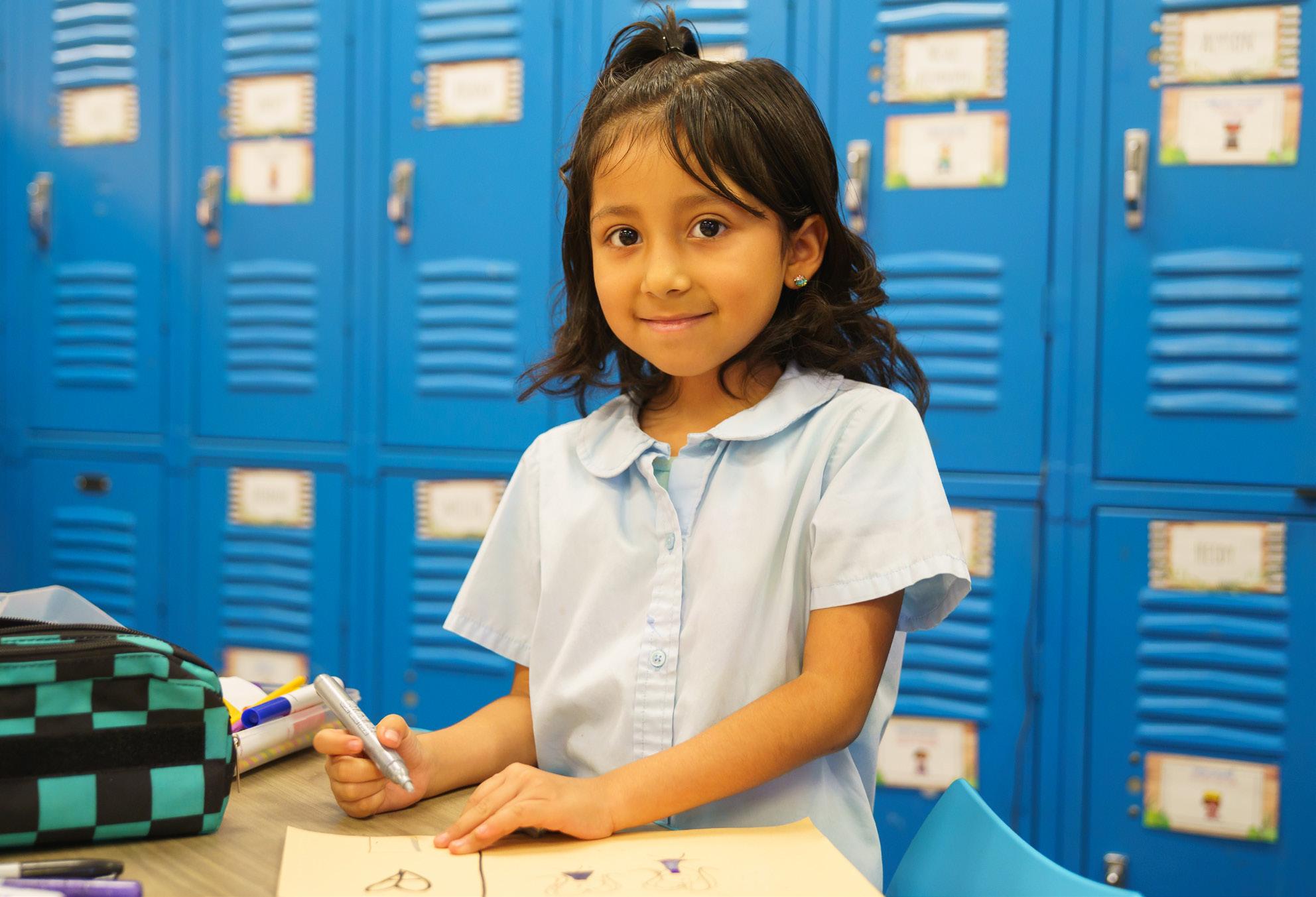
The Rainwater Charitable Foundation has invested significantly in the Tarrant To and Through Partnership (T3) to enable more high school students to earn post-secondary credentials. These credentials have a significant economic impact on individuals, their families, and on the broader community.
T3 is dedicated to providing a continuum of tangible supports and resources to help students and their families plan, pursue, and persist in post-secondary pathways starting early in their educational career. Launched in the fall of 2020 at six Fort Worth ISD
(FWISD) high schools, T3 has expanded to serve more schools, more districts, and more grade levels through gifts from RCF and other funders. By the fall of 2022, T3 served all 14 comprehensive FWISD high schools as well as both high schools in Crowley ISD. In partnership with the Texas Christian University (TCU) College Advising Corps, T3 places college and career advisors in local schools to help students understand what opportunities exist after high school and what steps they need in order to take advantage of those opportunities. Additional T3 supports include financial aid completion, application and enrollment support, summer bridge programming, scholarships, and emergency funding.
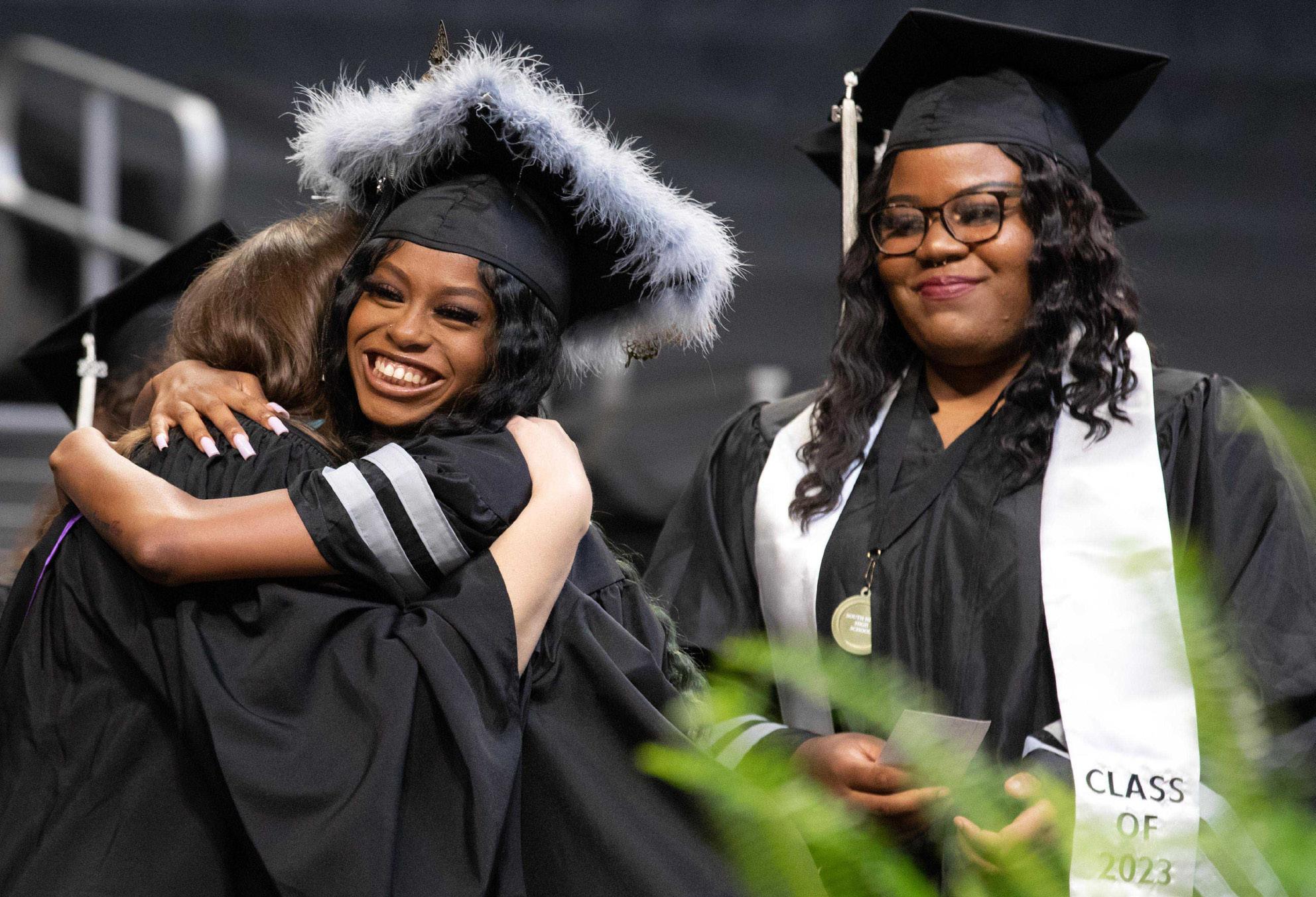
Tarrant County College (TCC) $ 120,000 or less
The University of Texas at Arlington (UTA)
Tarleton State University, Texas Christian University, Texas Wesleyan University, Texas Woman’s University, University of N. Texas (UNT), UNT Dallas
$ 85,000 or less
$ 65,000 or less
For more information about the T3 Partnership please visit www.t3partnership.org
T3 has leveraged formal partnerships with local colleges and universities to offer “last dollar” scholarships to all T3 scholars who meet certain income thresholds. This means that any T3 scholar who has an adjusted gross family income as outlined at left will have their tuition 100% covered through this scholarship program. We are incredibly grateful for the many partners investing in T3, including institutions of higher education.
College enrollment at the six FWISD T3 launch high schools (Diamond Hill, Dunbar, Eastern Hills, OD Wyatt, Polytech, and Western Hills in FWISD) increased by 59.9% compared to non-T3 comprehensive high schools, which improved by 11.9%.
The Leadership Academy Network (LAN) is an innovative partnership between FWISD and Texas Wesleyan University (TXWES), operating under the provisions of Texas Senate Bill 1882 for the express purpose of radically improving outcomes for six PK-8 Leadership Academies.
The partnership is guided by defined performance targets and campus autonomies, allowing for flexibility related to curriculum, instruction, enrichment, staffing, and budget. These autonomies have been leveraged to serve the 2,800 enrolled students with a particular focus on culture and environment, campus support, and instructional assistance to ensure academic excellence for all students. Examples of autonomies include: LAN teachers receive 30+ additional professional development hours, LAN schools have a longer school day, LAN scholars participate in weekly enrichment activities every Friday while teachers get additional planning and collaboration time. LAN teachers are also eligible for performance pay based on student performance, and there is a rigorous instructional support cycle for teachers, instructional coaches, and instructional leaders.
The LAN works to identify needs, realign approaches, and resource solutions to
effectively respond to student, family, teacher, and leader needs. Partnerships with other nonprofits enable LAN schools to connect with community organizations to provide enrichment, intervention, and student-family wraparound supports.
The LAN is managed by a five-person executive team that oversees curriculum, academic achievement, operations, contracts, data analysis and research, professional development, and innovation. This team is housed within the TXWES College of Education, which supports LAN academic initiatives and teacher development and training, as well as student services.
The LAN’s focus on student academic achievement, well-being, and services to families and community is beginning to show. These innovations have resulted in LAN campuses outperforming their peer schools and the LAN achieving a B rating. These innovations also have positively impacted LAN teachers and leadership, as there is an 81% teacher retention rate, 100% master teacher retention rate, and a 96% school leader retention rate after the 2022-23 academic year.

Most LAN campuses maintained high-level scores or improved their overall scores, with John T. White and Mitchell Boulevard making especially impressive gains.
The Dream Big Determined Scholar Award was created in partnership with the Meyerson Family Foundation and Fort Worth Star-Telegram in 2016. The award recognizes and provides support for Tarrant County high school students who wish to pursue higher education and have overcome adversity to achieve academic success. Determined Scholars receive individualized college advisory services, cohort model support, and flexible financial assistance of up to $20,000.
Determined Scholars have tremendous potential to create change in the world and can serve as important and needed role models for families, friends, and communities. As of 2022, forty-one students have received awards and are attending colleges throughout the country, including Texas Christian University, The University of Texas, The University of Notre Dame, Massachusetts Institute of Technology, and Stanford University. The seventeen Dream Big Determined Scholars from 2021 and 2022 have received $836,600 in additional scholarship funds to date.
For more information about the Dream Big Determined Scholar Award please visit www.dreambigfortworth.org
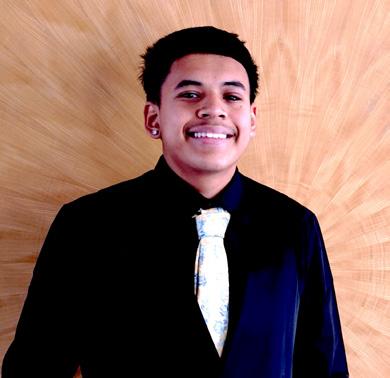


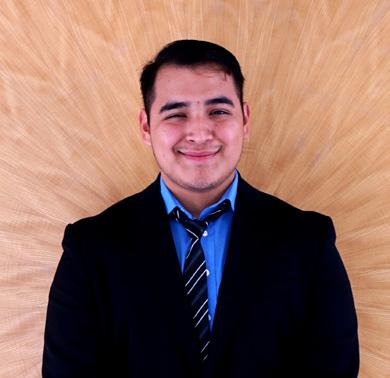

“I am a Determined Scholar because I am willing to overcome challenges and obstacles and turn them into opportunities to help others.”
Bryan Molina
Sam Houston High School (Arlington ISD)
“I am a Determined Scholar because I was blessed with opportunities and knowledge to help others and make a change in their lives all while accomplishing my dreams.”
Caroline Salmeron
World Languages Institute (FWISD)
“I am a Determined Scholar because I seek growth as a person, student, and athlete from my experiences. I hope to pursue engineering and be a part of technology in our future. I want to impact other women in STEM and my family positively.”
Fernanda Espinoza
Trimble Technical High School (FWISD)
“I am a Determined Scholar because my determination and ambition will help guide me in changing the world and impacting the lives of millions.”
Jose Barajas
Marine Creek Collegiate High School (FWISD)
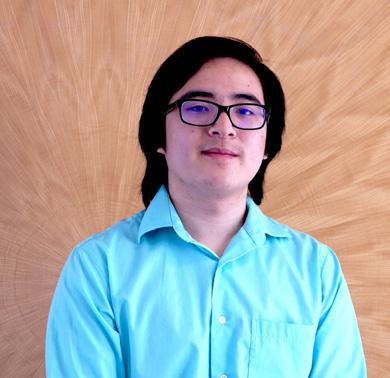
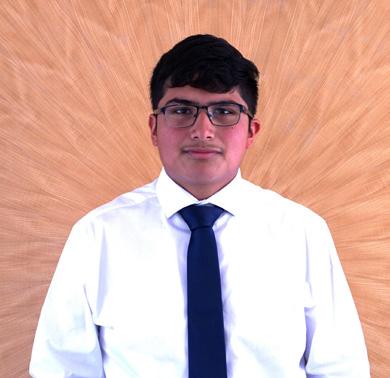

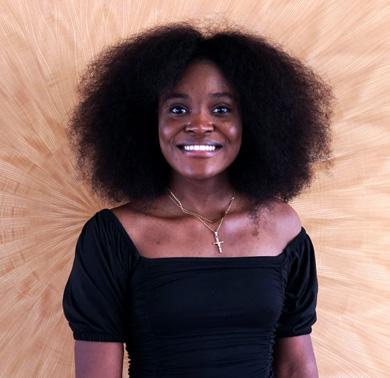
“I am a Determined Scholar because I refuse to let my past limit me, and I take necessary steps in order to assure that I can be someone that the people in my community can look up to.”
Kaylee Wyrick
Paschal High School (FWISD)
“ I am a Determined Scholar because I want to create a positive impact on the lives of others and carve a path of success for me and my family so that we are better equipped to help others.”
Khang Nguyen
Fossil Ridge High School (Keller ISD)
“I am a Determined Scholar because I am hardworking and motivated to provide for my community and family no matter the setbacks that I face.”
Leo Molina
South Hills High School (FWISD)
“I am a Determined Scholar because I want to grow and connect with people from all walks of life. I want to use what my family has taught me to become the best version of myself.”
Makayla Johnson
Marine Creek Collegiate High School (FWISD)
“I am a Determined Scholar because I never let my past mistakes define who I am or who I’ll become rather, I push myself beyond my limits to achieve whatever it is I have set my mind on.”
Mariam Fatuma
Western Hills High School (FWISD)

“I am a Determined Scholar because I continually pursue success through the means of higher education despite adversity I have faced throughout my life.”
Sydney Lopez
VR Eaton High School (Northwest ISD)
have received awards and are attending colleges throughout the country, including
MIT
University of Notre Dame
Stanford University
Texas Christian University
University of Iowa
The University of Texas
The University of Texas at Arlington
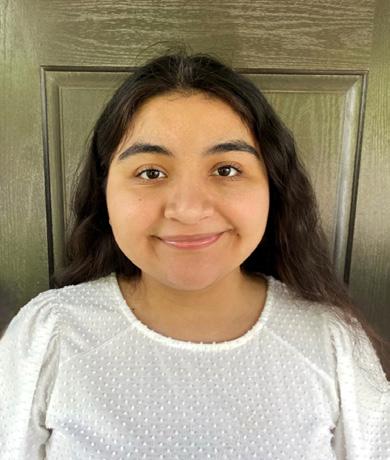

“ I am a Determined Scholar because I seek opportunities to ensure that I have the best future for myself and my family.”
Angela Benitez
Rice University, graduated from Trimble Technical High School (FWISD)
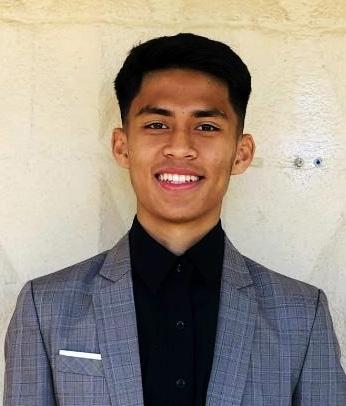

“ I am a Determined Scholar because I am motivated to represent the community that I grew up in and prove to the world that you can be successful no matter where you come from.”
Ceu Thang
Texas Christian University, graduated from O.D. Wyatt High School (FWISD)


“ I am a Determined Scholar because greatness doesn’t come overnight. It comes with hard work, overcoming obstacles, and learning from mistakes. It’s something I truly believe in because it makes a difference in you.”
Ethan Paredez
Texas Christian University, graduated from Sam Houston High School (Arlington ISD)
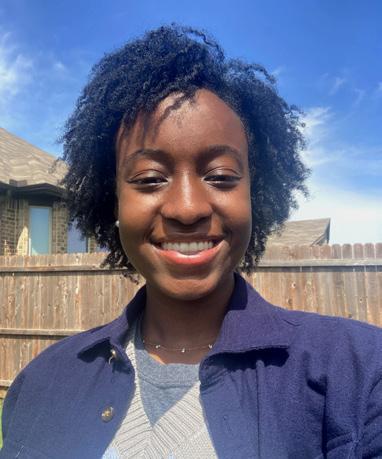

“ I’m a Determined Scholar because I channel my obstacles and tribulations into moments of success and growth in myself and my community.”
Grace Irumva
Texas Christian University, graduated from Marine Creek Collegiate High School (FWISD)
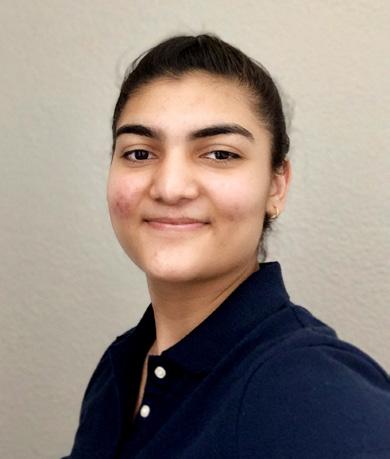

“ I am a Determined Scholar because I do not let anything limit me.”
Isha Patel
Carleton College, graduated from Fossil Ridge High School (Keller ISD)
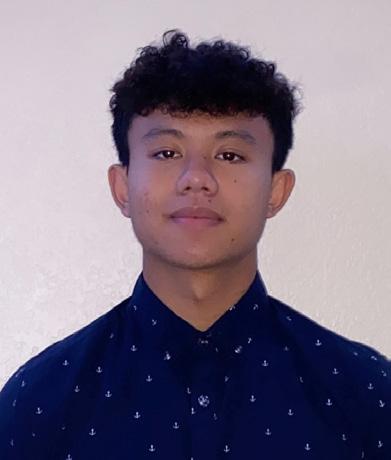

“ I am a Determined Scholar because I am motivated to accomplish my goals in pursuing architecture someday so I can give back to my community. I am inspired to give it my all in what I do because I believe that there is no limit to what I can accomplish in life.”
Poe Reh
University of North Texas, graduated from Trimble Technical High School (FWISD)


“ I’m a Determined Scholar because I am willing to broaden my perspectives to learn more about the world and to contribute to it.”
Renee Antwi
Yale University, graduated from Sam Houston High School (Arlington ISD)
Academy for Urban School Leadership
Middle School Leadership Academy Redesign
Beacon Hill Preparatory Institute High Dosage Tutoring: Closing Reading and Math Learning Gaps
BES, Inc.
Supporting Fort Worth Educational Leaders to Sustain Equitable and Excellent Schools
Academy Literacy Curriculum, Staffing, and Professional Development Support
DonorsChoose Support for #TeachersCan Campaign in Tarrant and Smith Counties
IDEA Public Schools
Strategic Initiatives: Student, Family, Teacher Mental Health and Wellness, Student and Family Support(s)
ImmSchools
Professional Development and Outreach to Support
Undocumented Students and Mixed-Status Families in Tarrant County Schools
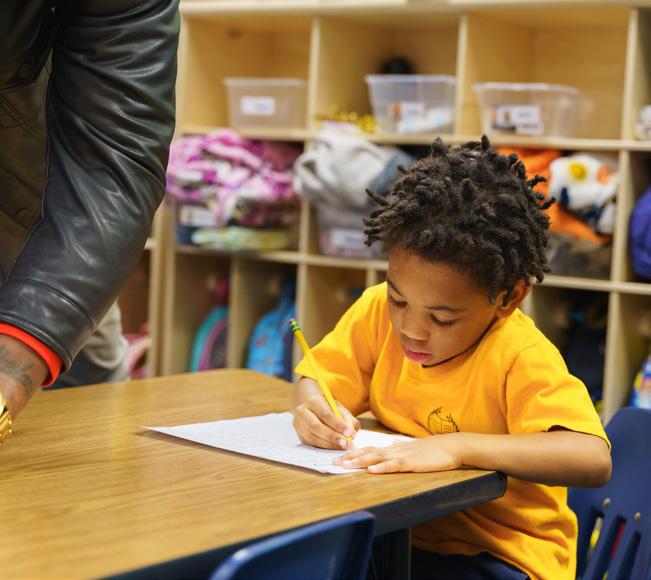
The Reading League Texas (TRLT) Strategic planning and capacity building support
The Welman Project
Free supplies and materials for teachers and nonprofits in North Texas
UNT Dallas Foundation
Principal Impact Collaborative at UNT Dallas
Uvalde Cisd Moving Forward Foundation
Capital campaign to build a new elementary school in Uvalde
WestEd Parent-Teacher Teams in Two FWISD Elementary Schools
YMCA of Metropolitan Fort Worth Support for Programs at Eastern Hills Elementary
Camp Fire First Texas Early Education Workforce Development Programs
Child Care Associates
Innovative scalable affordable child care models for North Texas families
and
for
workers and professional development to increase mental health and well-being of infants in Tarrant County
Fortress Youth Development Center
Free early childhood education for families in Morningside neighborhood
MHMR Foundation
Launch of Better Beginnings, an evidence-based universal home-visiting model in JPS public hospital system
Montessori Childrens House of Nantucket Inc.
Early childhood program featuring self-directed activity, hands-on learning, and collaborative play
North Texas Community Foundation: Best Place for Kids
Expansion of FIND! child care search tool to include summer care
Early Supporting Early Learning at the US Department of Education
Texans Care for Children, Inc.
Texas Early Childhood English Language Learner Initiative
Texas Women’s Foundation
Child care access fund for home-based providers and vulnerable families
The Dallas Foundation: Early Matters Texas
Director of statewide coalition of early childhood collectives on policy and advocacy efforts
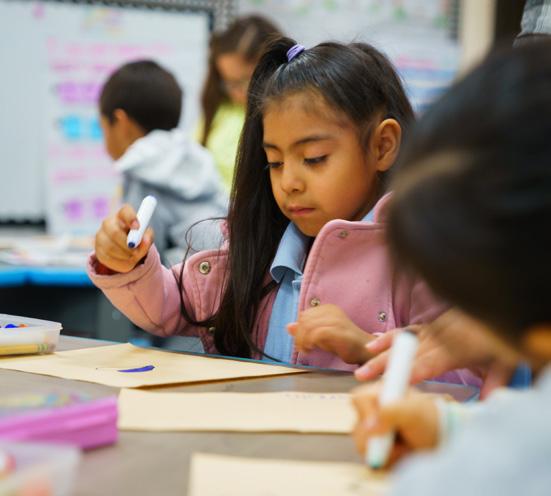
Only 69,500 students are currently enrolled in Fort Worth Independent School District, while we estimate there are 93,000+ seats available.
EARLY CHILDHOOD EDUCATION CONTINUED...
United Way of Tarrant County: Early Learning Alliance
Tarrant county coalition of early childhood organizations working toward systemic solutions to increase school readiness
University of North Texas Health Science Center Foundation
Learning community to facilitate transitions into kindergarten for families with children not in licensed child care settings
University of Texas at Austin - Dell Medical School
The Impact Factory - Incubation space for programs addressing health and educational disparities among young children
COLLEGE & CAREER READINESS ACH Child and Family Services Academic Enrichment Program – Wedgwood Campus
Scholars
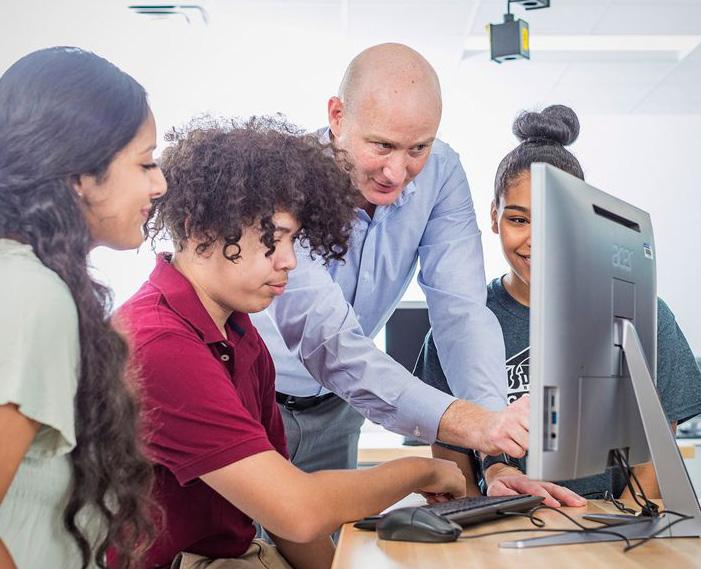
(AOC)
Avance-Dallas, Inc.
Spanish language parenting programs for families with young children in Fort Worth
Bachman Lake Together Community-based collective impact and parent leader development to increase kindergarten readiness
CASA of Tarrant County Expanded Diverse Recruitment of Volunteers and Educational Advocacy for Children in Foster Care
MHMR Foundation
Refugee Services Program, providing educational case worker support for FWISD families
MHMR Foundation Family Outreach (Porch Visits) in Partnership with FWISD Schools
Mosaic Counseling Centers of East Texas, Inc. Supporting adjusted fee mental health care, education, and research
National Center for Families Learning Parent leadership and advocacy training program
NewDay Services for Children & Family Parent trainings to decrease incidences of child abuse and neglect
North Texas Community Foundation Best Place for Kids
Presbyterian Night Shelter Emergency Response Plan, including generator for homeless shelter
Presbyterian Night Shelter Support for Children’s Advocates
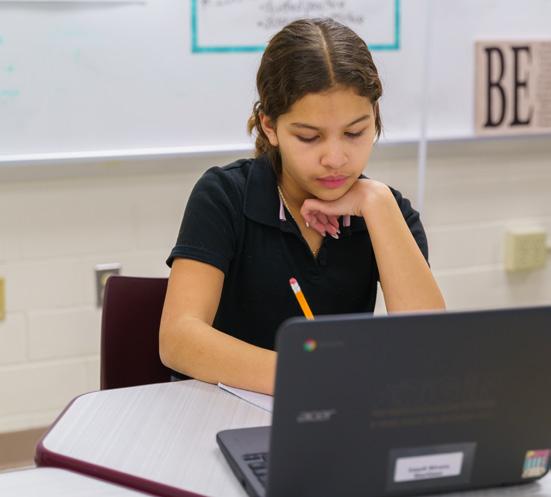
FAMILY WELL-BEING & ENGAGEMENT CONTINUED...
Safe City Commission (dba One Safe Place) Capital Campaign
SafeHaven of Tarrant County Emergency Shelter Needs
Shaken Baby Alliance
Prevention of infant deaths through professional training for police, lawyers, and other professionals tasked with child welfare
The Concilio Increasing educational and economic opportunities for Latino families in Tarrant County
The Cooper Institute Impact of Positive Lifestyle Behaviors on Health and Longevity
Big Thought Programs to close the opportunity gap for youth in marginalized communities
Boys & Girls Clubs of Greater Tarrant County Expansion of Mobile Programming to Under-Resourced Communities in Fort Worth
United Way of Tarrant County
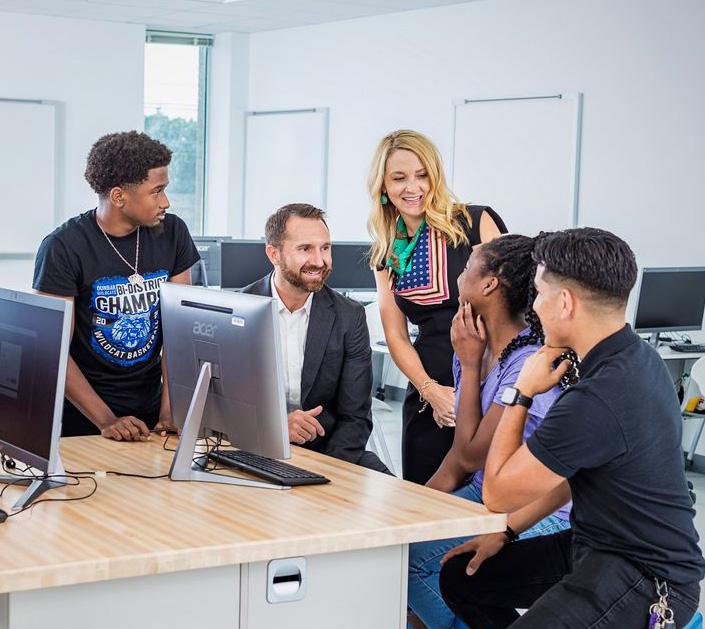
TIME/YOUTH ENRICHMENT CONTINUED...
Central Texas Conference
(dba Project Transformation Central Texas) Operations of summer literacy camps
Clayton Youth Enrichment
Social Emotional Learning Initiative - Post-COVID Adjustments and Summer Program Expansion
Dallas Afterschool
Racial Equity Support (Research, Training, Evaluation) for Partner Sites
Fort Worth Junior Golf Foundation/The First Tee of Fort Worth Briscoe Program Location Support
Historic Southside, Inc.
Summer Swim Program in Partnership with FWISD and City of Fort Worth
Kids Hope USA Elementary School Mentoring Program
North Texas Community Foundation Read Fort Worth Strategic Framework Support
Northside Inter-Community Agency (NICA) Supporting The Circle of Winners Program
with Student Athletes
Texas Academy 4 General Support for Elementary Mentoring Program
The Jordan Elizabeth Harris Foundation
Spanish Language Hope Squad Video & Keep All Meds Secured (KAMS) Initiative
The Mentoring Alliance
Summer Camp Programming in East and Central Texas
Tyler Junior Golf Foundation (dba First Tee Greater Tyler)
General Operating and Woldert Park Capital Improvement
United Community Centers Accelerated and Extended Literacy Programming
Whitehouse ISD Summer Camp (Mentoring Alliance Partnership)
Center for Transforming Lives
Economic and educational coaching and programming to disrupt the cycle of poverty for women and families
Child Poverty Action Lab Systemic initiatives working to eliminate childhood poverty in Dallas
CLC, Inc. (dba Community Learning Center) Family Employment Initiative
Community Frontline Program Expansion and Capacity Building
Cornerstone Assistance Network
Financial Coaching and Case Management for FWISD Families
Family Pathfinders Financial Capability Services
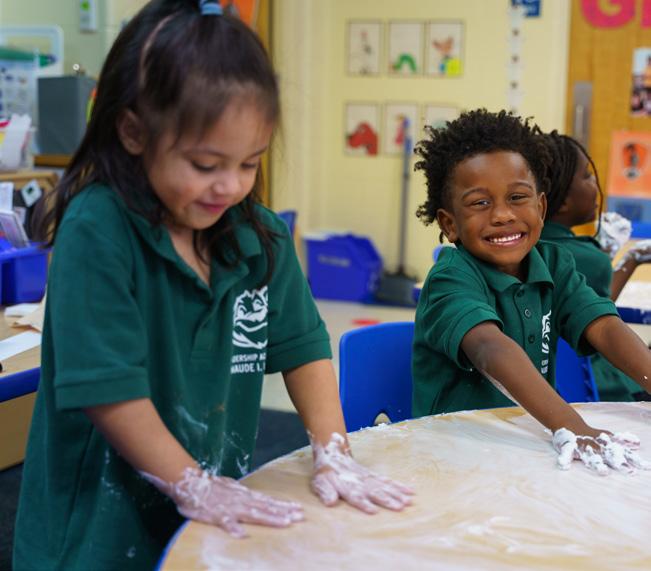
Cornerstone Assistance Network New Life Center Capital Campaign
East Texas Veterans Community Council Camp V
Forest Forward
Forest Theater Restoration and Expansion
Fort Worth Housing Solutions
Support for the Stop Six Choice Neighborhood Initiative (2021) and Supportive Services for Clients (2022)
Healthy Tarrant County Collaboration
Grow Southeast Urban Agriculture Initiative Capacity Building
Las Vegas Trail Rise (LVTRise)
Cross-sector collaborative working with residents to improve their neighborhood and their day-to-day lives
Southside City Church Tiny home development serving housing-insecure community
Tarrant County Coalition for Peace and Justice The Fred Rouse Memorial Park project
The Cooper Institute
Impact of Positive Lifestyle Behaviors on Health and Longevity
Transform 1012 N. Main Street
Property Acquisition to Create a Center for Community Healing
Trinity Habitat for Humanity Neighborhood Revitalization Program - Hillside Morningside
United Way of Tarrant County African American Museum Tour
United Way of Tarrant County BRAVE/R Together: Increasing health and life expectancy for residents of 76104 neighborhood
United Way of Tarrant County Community Grant Program
United Way of Tarrant County
Decreasing health and financial inequities in Tarrant County, including launch of a health clinic
United Way of Tarrant County National Juneteenth Museum
United Way of Tarrant County
Tarrant County Coalition for Peace & Justice - Mr. Fred Rouse Memorial Park Project
Total
&
,
RCF’s medical research strategy is to use philanthropic dollars to address pressing gaps in the field of primary tauopathies. These gaps could involve novel models or research, or new talent that might be overlooked by traditional sources of funding.
Over the past two years, we’ve had a particular focus on drug discovery and the pressing need to take promising research out of academic labs and into the clinic. In 2021, RCF formed a new partnership called a “drug discovery institute” (DDI) to support our growing drug discovery portfolio. DDIs expand expertise across the core disease research that occurs in academic labs to specialized drug development capabilities found in industry. RCF has now partnered with three organizations: Charles River Discovery Research Services, UK Ltd.; The ALBORADA Drug Discovery Institute (ADDI) at the University of Cambridge; and The Oxford Drug Discovery Institute (ODDI) at the University of Oxford. If successful, RCF plans more of these DDI collaborations in the future.
As the world emerged from the COVID-19 pandemic in late 2021, we stepped cautiously back into in-person gatherings. The Rainwater Prizes were awarded in October of 2021 during the Eurotau conference in Lille, France, marking the first time the prize was
awarded internationally. Our Tau Consortium Investigators Meetings resumed in-person in the summer of 2022 after being held virtually for two years. In 2022, the medical research team hosted its first clinical workshop with the goal to develop a framework for translating tau therapeutics from late nonclinical studies to early proof-of-concept studies. A publication resulting from this workshop is expected to be released in late 2023.
After 14 years and an investment of more than $165 million, RCF remains committed to funding novel basic research, drug discovery, and clinical trials. In addition, RCF is creating tools and infrastructure to enable researchers to advance their neurodegenerative disease programs. We continue to work with patient advocacy groups, the US Food and Drug Administration (FDA), other funders, and pharmaceutical companies to advance treatments for patients and families affected by tauopathies.
While most of our research efforts focused on neurodegenerative tauopathies, over the past two years, RCF supported a few non-tau research projects that we hope will have a significant impact on glioblastoma clinical research, and early-outpatient COVID treatments, and long COVID studies.

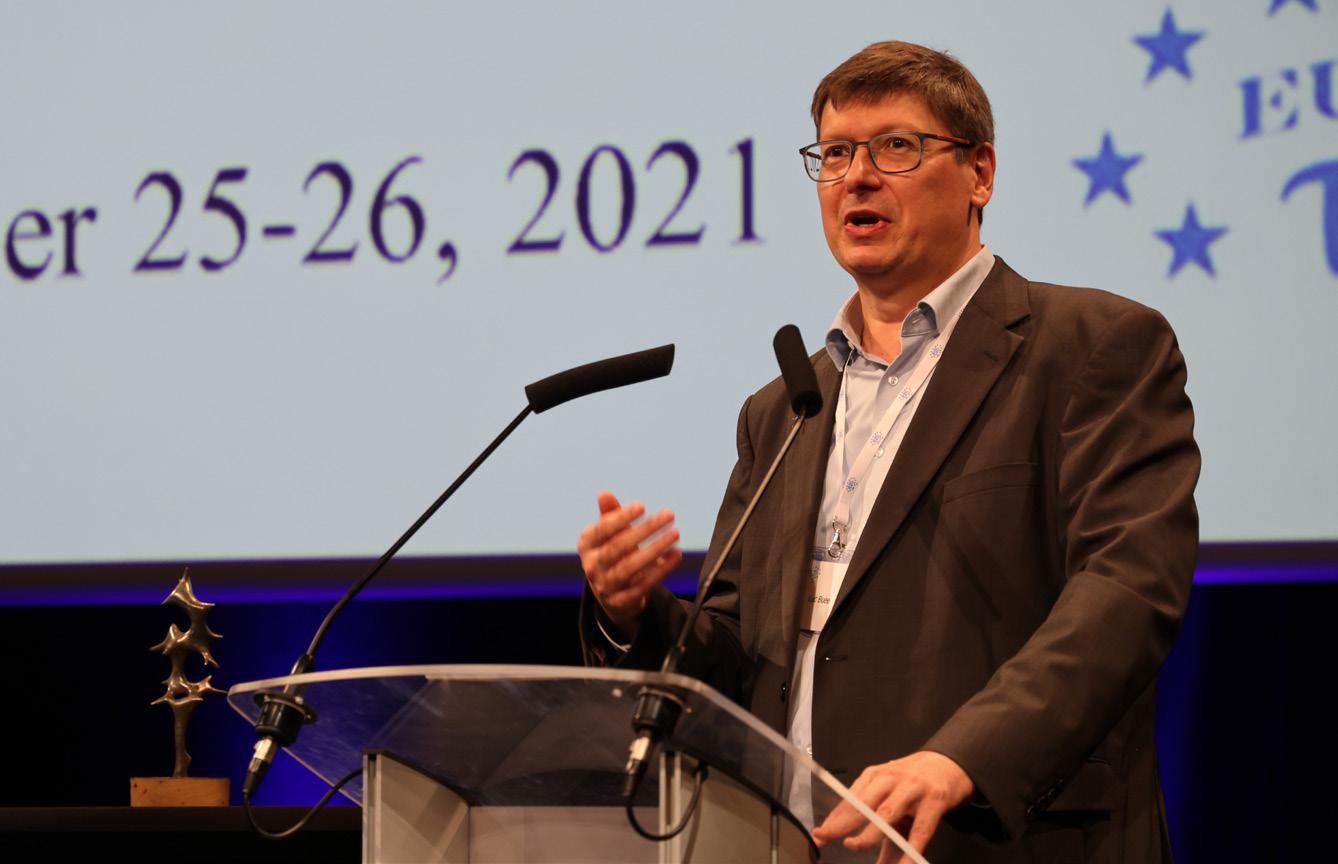

There is an urgent need to identify and validate fluid biomarkers for primary tauopathies in order to diagnose patients earlier, more accurately, and more cost-effectively, with the ultimate goal of increasing the success of future clinical trials. RCF supports biomarker programs which will hopefully lead to meaningful advances in the field. Fortunately, the field is building momentum to address this urgent gap with recent breakthroughs coming from RCF-supported large collaborations and other research team efforts.
In 2021, RCF joined in supporting a longitudinal biomarker program called the Neurofilament Surveillance Project (NSP) headed by the Bluefield Project to Cure FTD The focus of the NSP is to evaluate levels of a protein called neurofilament light chain (NfL) in blood from subjects who are carriers of genetic mutations for frontotemporal lobar degeneration (FTLD). Although only observational in design, this effort should
help illuminate the time-of-onset and progression of genetic FTLD, which is vital for early identification of symptoms and for clinical trial recruitment.
In late 2022, a team of researchers revealed that a four repeat (4R) isoformspecific tau species from microtubulebinding region was increased in the brains of tauopathy patient brain tissue but was decreased inversely in the cerebrospinal fluid of controls in some types of tauopathies. This may represent the first affirmative biomarkers to aid in the diagnosis of primary tauopathies, differentiating them from Alzheimer’s Disease (AD) and facilitating updates to clinical trial designs.
Breakthroughs like these are becoming increasingly important to the field, as they provide hope that with continued support, collaboration, and determination, selective and sensitive biomarker tests will one day be available.
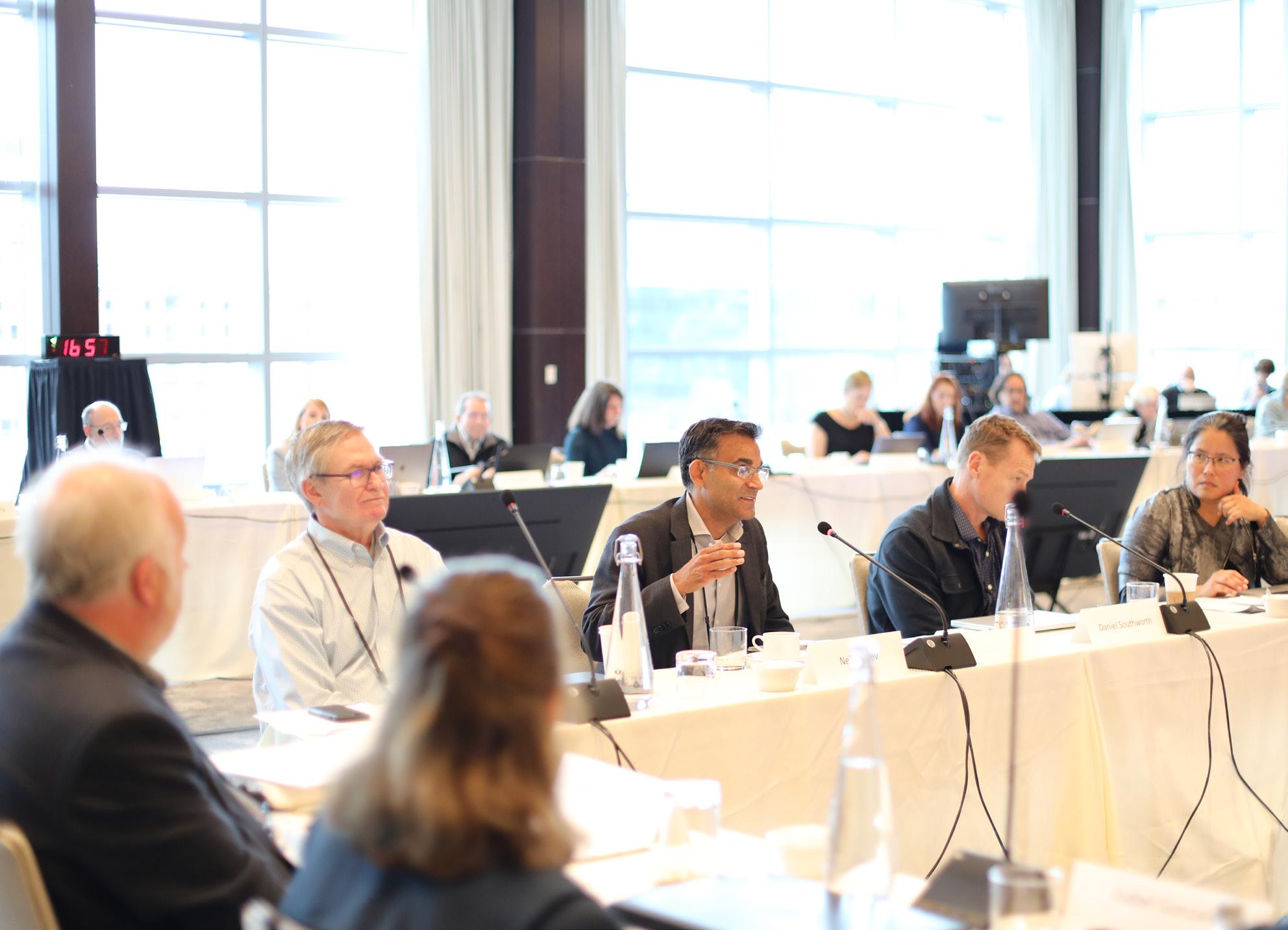

Tauopathies are a group of illnesses consisting of over 20 clinicopathological neurodegenerative diseases*
* VandeVrede et al., 2020
Despite it being first described in 1963, accurate diagnosis of progressive supranuclear palsy (PSP) has been a challenge. In 1994, the National Institute of Neurological Disorders and Stroke (NINDS) sponsored an effort to create neuropathologic criteria for PSP. Although extensive in-person examination of samples brought a level of rigor to the diagnostics, the samples were not prepared uniformly, and neuropathologists were limited by the lack of immunohistochemical and antibody approaches. As a result, congruity of diagnoses between neuropathologists was moderate, at best, illustrating the difficulty of accurate early diagnosis during a patient’s lifetime.
In 2022, the first Rainwater PSP Neuropathologic Diagnosis Criteria was published. This study was led by a team of RCF-supported researchers to revisit the idea of a more uniform methodology for neuropathologists to use to diagnose
PSP using modern and widely available advancements. The team identified sets of tufted astrocytes that are unique to PSP brains through an assessment of 15 typical and atypical PSP cases and 10 other tauopathies. The study was blinded to clinical and neuropathological information, with raters providing a diagnosis (PSP or not-PSP) based upon neurofibrillary tangles and tufted astrocytes in specific brain regions. The criteria showed both a high sensitivity (0.97) and specificity (0.91), a near-perfect reliability for diagnosing PSP and differentiating it from other tauopathies. In fact, 17 of the 25 cases had 100% agreement across all 14 raters who participated in this study.
It’s our hope that the detection of these tufted astrocytes in postmortem tissue will lead to biomarker advances that can be used to diagnose patients more accurately and within their lifetime.
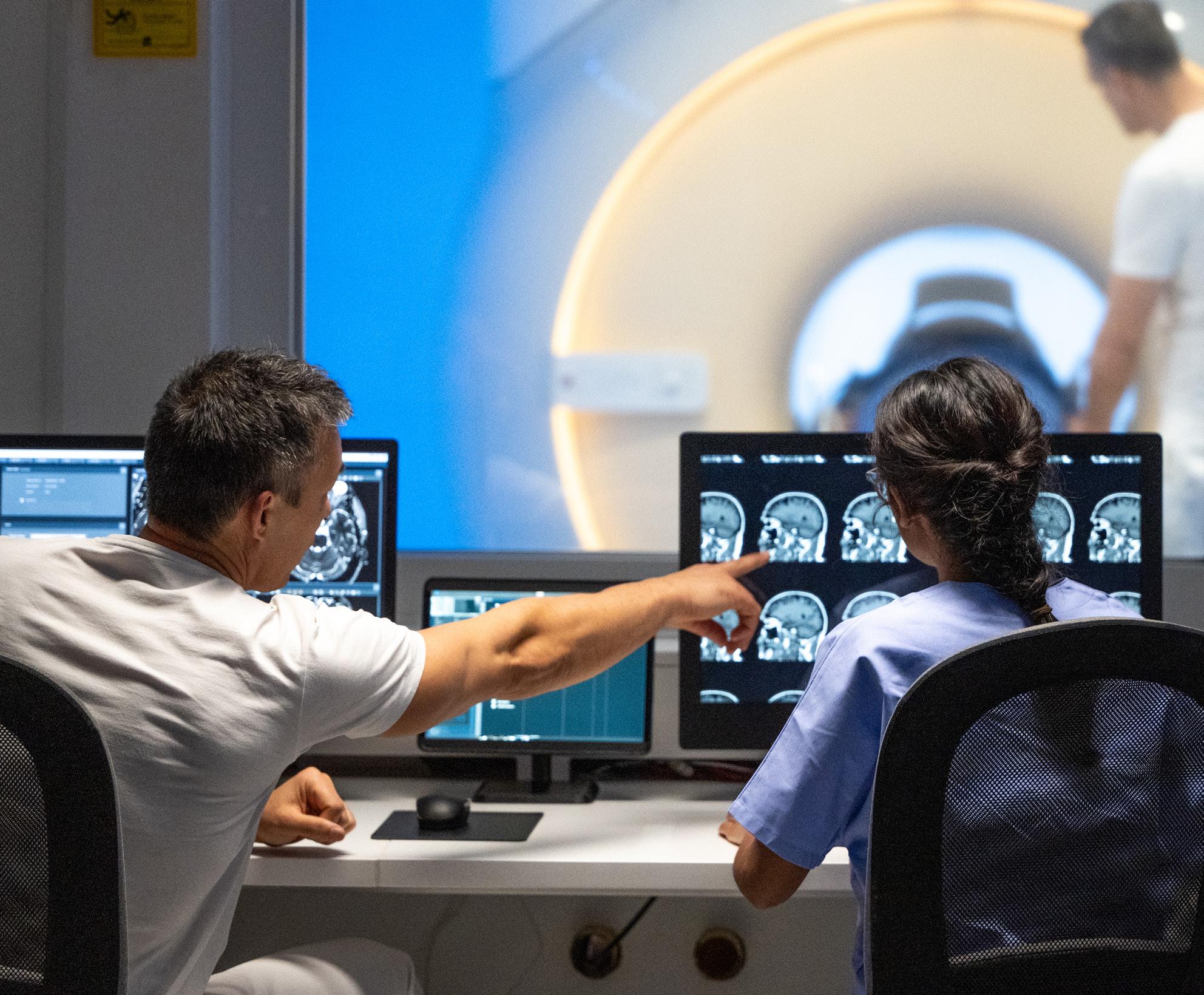

Progressive supranuclear palsy (PSP) has an estimated annual prevalence of 5–7 per 100,000 persons.*
* Roemer et al., 2022
The Rainwater Prize Program, which launched in 2018, recognizes scientific progress toward new treatments for neurodegenerative diseases. The largest of the prizes, The Breakthrough Prize, will be awarded for critical scientific contributions that lead to FDA approval and clinical adoption of an effective treatment for Progressive Supranuclear Palsy.
In 2021, Dr. David M. Holtzman (the Andrew B. and Gretchen P. Jones Professor and Chair of Neurology, Washington University School of Medicine in St. Louis) and Dr. Celeste Karch (Associate Professor of Psychiatry, Washington University School of Medicine in St. Louis) were respectively awarded the Rainwater Annual Prize for Outstanding Innovation in Neurodegenerative Research and the Rainwater Prize for Innovative Early-Career Scientist, during the Eurotau conference in Lille, France.
Dr. Holtzman was recognized in part for his discoveries on how apoE4, a protein involved in the metabolism of fats in the body, is involved in being a risk factor for Alzheimer’s disease and related dementia by playing a role in brain damage caused by accumulated tau. Dr. Karch was awarded
the early-career prize for her work to improve the understanding of how tau genetics influence tau biology and inform paths for therapeutic intervention.
In 2022, Dr. Alison Goate (the Jean C. and James W. Crystal Professor and Chair of Genetics, Icahn School of Medicine at Mount Sinai) and Dr. Martin Kampmann (Associate Professor for Neurodegenerative Diseases, University of California, San Francisco) were respectively awarded the Rainwater Prize for Outstanding Innovation in Neurodegenerative Research and the Rainwater Prize for Innovative EarlyCareer Scientist, during the Global Tau Virtual Conference.
Dr. Goate was recognized in part for her early work focused on Mendelian forms of dementia leading to the identification of mutations in APP, PSEN1, and MAPT as causes of Alzheimer’s disease and frontotemporal dementia. Dr. Kampmann was awarded the early-career prize for his work conducting the first genomic-wide CRISPR screens in human neurons to systematically identify genes controlling neuronal survival.

Dr. David M. Holtzman
The Andrew B. and Gretchen P. Jones Professor and Chair of Neurology, Washington University School of Medicine in St. Louis
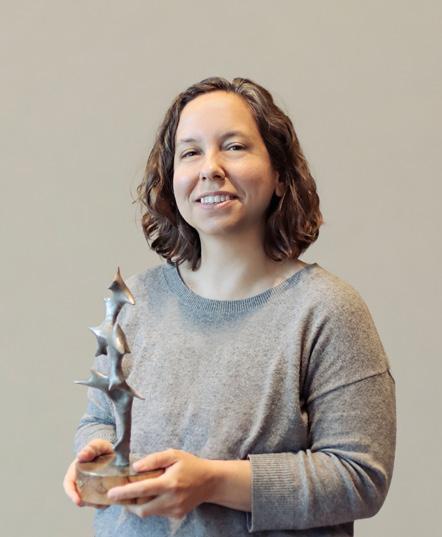
Associate
of
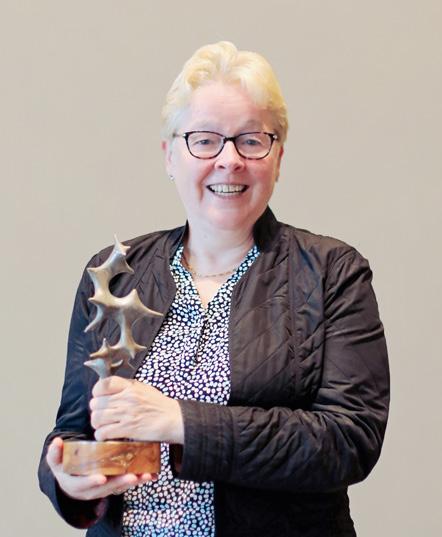
Dr. Alison Goate
The Jean C. and James W. Crystal Professor and Chair of Genetics, Icahn School of Medicine at Mount Sinai

Dr. Martin Kampmann
Associate Professor for Neurodegenerative Diseases, University of California, San Francisco
The Rainwater Prize Program, which launched in 2018, recognizes scientific progress toward new treatments for neurodegenerative diseases associated with the accumulation of tau protein in the brain. For more information about the Rainwater Prize Program please visit www.rainwatercharitablefoundation.org/rainwater-prize
Adam Boxer, MD, PhD
Regents of the University of California, San Francisco
SOMAmerproteomics for biomarker discovery in progressive supranuclear palsy
Amanda Woerman, PhD
University of Massachusetts
Genome editing therapeutics and companion diagnostics for the treatment of primary tauopathies
Claire Clelland, MD, PhD
Regents of the University of California, San Francisco
Developing CRISPR gene therapy for MAPT-FTLD and PSP
Dianna Wheaton, PhD
FTD Disorders Registry, LLC
The FTD Disorders Registry: Growing and Evolving to Better Facilitate Clinical Trial Readiness
Jennifer Yokoyama, PhD
Regents of the University of California, San Francisco
Peripheral gene expression signatures that predict tauopathy
John Crary, MD, PhD
Icahn School of Medicine at Mount Sinai
Deep learning enabled histological mapping of the integrated stress response in tauopathy using pathway-based polygenic risk
Katherine Possin, PhD
Regents of the University of California, San Francisco
Multi-Partner Consortium to Expand Dementia Research in Latin America (ReDLat)
Marina Emborg, MD, PhD
University of Wisconsin-Madison
Blood biomarkers of neurodegeneration and inflammation in a nonhuman primate model of genetic frontotemporal dementia
Randall Bateman, MD
Washington University School of Medicine
Plasma p-tau at p-tau217 and 181 compared to tau PET tangle pathology in BioFINDER2
Dennis Dickson, MD Mayo Clinic
FTD Multi-Site Tissue Core
Dianna Wheaton, PhD
FTD Disorders Registry, LLC
Partnering to Facilitate Clinical Trial Readiness through Study Referral Services and Expanded Platform Infrastructure Capabilities
Jennifer Yokoyama, PhD
Regents of the University of California, San Francisco
Predictive peripheral gene expression and data sharing initiative
John Crary, MD, PhD
Icahn School of Medicine at Mount Sinai
FTD Multi-Site Tissue Core
John Crary, MD, PhD
Icahn School of Medicine at Mount Sinai
The unfolded protein response in progressive supranuclear palsy
John Crary, MD, PhD
Icahn School of Medicine at Mount Sinai
FTD Multi-Site Tissue Core
As of April 2023, there were 20 active clinical trials listed in clinicaltrials.gov for PSP compared to 904 active trials for Alzheimer’s disease.*
* clinicaltrials.gov for PSP and clinicaltrials.gov for Alzheimer’s disease
Katherine Possin, PhD
Regents of the University of California, San Francisco
Multi-Partner Consortium to Expand Dementia Research in Latin America (ReDLat)
Lea Grinberg, MD, PhD
Regents of the University of California, San Francisco
Neuronal basis of circadian rhythm dysfunction in tauopathies
Ann McKee, MD
Boston University
FTD Multi-Site Tissue Core
Suzee Lee, MD
Regents of the University of California, San Francisco
Defining trajectories of neuroimaging biomarkers in MAPT mutation carriers
Thomas Neylan, MD
Regents of the University of California, San Francisco
Treatment of disturbed sleep in PSP
William Seeley, MD
Regents of the University of California, San Francisco
Frontotemporal Dementia: Pathology and MRI-based Biomarkers
William Seeley, MD
Regents of the University of California, San Francisco
FTD Multi-Site Tissue Core
Ana Maria Cuervo, MD, PhD
Albert Einstein College of Medicine
Development of CMA activators via PPI of NCoR-RAR (co-PI with Skidmore; in collaboration with Alborada DDI)
David Holtzman, MD
Washington University School of Medicine
Effects of blocking T cell activation on taumediated neurodegeneration
David Rubinsztein, MD, ChB, BSc (Med), PhD
University of Cambridge
Identification of druggable targets
Glenn Larsen, PhD*
Aquinnah Pharmaceuticals Inc.
Targeting Tau Stress Granules for the Treatment of Tauopathies
Gregory Petsko, DPhil*
Brigham and Women’s Hospital, Inc.
Enhancing Retromer Function: A Novel Therapeutic Strategy for Tauopathies
Jason Gestwicki, PhD
Regents of the University of California, San Francisco
Biophysics Platform for Targeting Tau Prions (DD1)
Jeffery Kelly, PhD
Scripps Research Institute
Proteostasis Regulators in Tauopathy
Amelioration
John Davis, PhD
Oxford Drug Discovery Institute
Low Density Lipoprotein Receptor (LDLR) upregulators for the treatment of Tauopathies
John Skidmore, DPhil
University of Cambridge
Development of community assays for assessing clearance and aggregation of tau in neuronal systems (co-PI with Duff)
Karen Duff, PhD
UK Dementia Research Institute at University College London
Development of community assays for assessing clearance and aggregation of tau in neuronal systems (co-PI with Skidmore ADDI)
Luc Buée, PhD*
Inserm (Institute National de le Sante et de la Recherche Medicale) Delegation
Nord Quest NanoTau
Paul E. Fraser, PhD*
University of Toronto
SUMO2 protein replacement therapy to counteract Tau toxicity in AD
Peter Sazani, PhD*
AcuraStem Inc.
Late-stage development of a PIKFYVE antisense oligonucleotide treatment for FTD
Richard Morimoto, PhD
Northwestern University
Drug Discovery to Ameliorate Proteostasis Failure in Tauopathies
Sally Temple, PhD
Regenerative Research Foundation
Targeted Degradation of Intracellular Tau
Stephen Haggarty, PhD
Massachusetts General Hospital
Advancing a Human Stem Cell-Based Platform to Support Discovery of Tauopathy Therapeutics
Timothy Miller, MD, PhD
Washington University School of Medicine
Elucidating Mechanisms and Therapeutic
Targeting of 4R Tau-Induced Toxicity in Astrocytes
*Funded as part of the Tau Pipeline Enabling Program (T-PEP) with the Alzheimer’s Association
Anna Krichevsky, PhD
Brigham and Women’s Hospital, Inc.
miR-132 neuroprotection for tauopathies
David Holtzman, MD
Washington University School of Medicine
Effects of statins on lowering brain ApoE and on tau mediated neurodegeneration
David Rubinsztein, MD, ChB, BSc (Med), PhD
Alzheimer’s Research UK
Autophagy Targets for Tau Lowering
Jason Gestwicki, PhD
Regents of the University of California, San Francisco
Understanding How “Damaged” Tau is Cleared by the Molecular Chaperone Network
Jason Gestwicki, PhD
Regents of the University of California, San Francisco
Activators of the 20S Proteasome
Janice Kranz, PhD*
Eikonizo
HDAC6 inibitors to treat tauopathies: proof of mechanism
Li Gan, PhD
Joan and Sanford I. Weill Medical College of Cornell University
Development of best of class inhibitors of cGAS to treat tauopathy
Continued...
Matthew Disney, PhD
Scripps Research Institute
Targeting RNAs Associated With Tauopathies With Small Molecules
Patrik Verstreken, PhD*
VIB-KU Leuven Center for Brain & Disease Research
Therapeutic strategies to target Tau-Synaptogyrin-3 interaction
Sally Temple, PhD
Regenerative Research Foundation
Development of tau lowering intrabodies
Aimee Kao, MD, PhD
Regents of the University of California, San Francisco
Molecular Mechanisms Underlying Wild-type and Mutant Tau Clearance
Alison Goate, DPhil
Icahn School of Medicine at Mount Sinai
Investigating rare and common mechanisms underlying tauopathy risk
Anna Krichevsky, PhD
Brigham and Women’s Hospital, Inc.
Defining trajectories of neuroimaging biomarkers in MAPT mutation carriers
Bess Frost, PhD
The University of Texas Health Science Center at San Antonio
Nanopore long-read sequencing analyses of retrotransposons in brains of patients with progressive supranuclear palsy
Bradley Hyman, MD, PhD
Massachusetts General Hospital
Which species of tau are bioactive?
Celeste Karch, PhD
Washington University School of Medicine
Non-coding RNAs in Tauopathies
David Holtzman, MD
Washington University School of Medicine
Deciphering the role of Tau and ApoEin the adaptive immune response
Fanny Elahi, MD, PhD
Icahn School of Medicine at Mount Sinai
Unbiased proteomics to uncover vascular contributions to tauopathy in a diverse community-based sample
Jennifer Rauch, PhD
University of Massachusetts
Explaining the role of LRP1 on tau strain spread
Jessica Rexach, MD, PhD
Regents of the University of California, Los Angeles
Unbiased in situ multiomic profiling of CNS-associated lymphocytes and target cell receptor-ligand pairs in dementia brain
Judith Steen, PhD
Children’s Hospital Corporation
Quantitative proteomics to understand FTD related tauopathies
Judith Steen, PhD
Children’s Hospital Corporation Single Cell Proteomics
Justin Ichida, PhD
University of Southern California
Identification of neuronal and microglial pathways that rescue tau-driven neurodegeneration using MAPT V337M organoids
Laura Mitec, PhD
Bluefield Project to cure FTD
Neurofilament Consortium
Li Gan, PhD
Joan and Sanford I. Weill Medical College of Cornell University
Targeting maladaptive immune response to enhance cognitive resilience in tauopathy
Marc Diamond, MD
University of Texas Southwestern Medical Center
Mechanisms of tau membrane translocation
Marina Emborg, MD, PhD
University of Wisconsin-Madison Expansion of NHP studies
Marina Emborg, MD, PhD
Regents of the University of Wisconsin System
Blood biomarkers of neurodegeneration and inflammation in genetic FTD
Sally Temple, PhD
Regenerative Research Foundation
Defining the role of the RNA binding protein ELAVL4 in tauopathy
Songi Han, PhD
Regents of the University of California, Santa Barbara
In Vitro Replication of Pthological Tau Fibrils
Stephen Haggarty, PhD
Massachusetts General Hospital
Expanding Targeted Protein Degradation
Strategies for Tauopathy: TPD for TAU
Ana Maria Cuervo, MD, PhD
Albert Einstein College of Medicine
Chaperone-mediated autophagy and endosomal microautophagy modulators of tau pathobiology
Bess Frost, PhD
The University of Texas Health Science Center at San Antonio
Investigating tau-induced retrotransposon deactivation in microglia as a novel driver of neuroinflammation
Bradley Hyman, MD, PhD
Massachusetts General Hospital
Characterizing tau seeds
Daniel Geschwind, MD, PhD
Regents of the University of California, Los Angeles
Comprehensive functional genomics to mitigate neurodegeneration in tauopathy
David Holtzman, MD
Washington University School of Medicine
Effects of LXR stimulation on tau-dependent neuroinflammation and neurodegeneration
Martin Kampmann, PhD
Regents of the University of California, San Francisco
Elucidating cellular mechanisms controlling tau pathology and selective vulnerability by CRISPR-based genetic screens
Sally Temple, PhD
Regenerative Research Foundation
Identifying and Combating Early Cellular and Molecular Phenotypes in Tauopathies
Daniel Southworth, PhD
Regents of the University of California, San Francisco
Targeting tauopathies with high resolution cryo-electron microscopy for PET image development
Gil Rabinovici, MD
Regents of the University of California, San Francisco
Human Tau Imaging
Neil Vasdev, PhD
Michael J. Fox Foundation for Parkinson’s Research
Discovery of Selective PET Imaging Agents for Primary Tauopathies
Neil Vasdev, PhD*
The Centre for Addiction and Mental Health (CAMH) at the University of Toronto
Human Translation of Oxiant 4R-tau PET Tracers
Robert Mach, PhD
University of Pennsylvania
Rescreening of the MJFF Compound Library for Activity at Alpha Synuclein and 3R/4R Tau
Samuel Svensson, PhD
Oxiant Discovery AB
New and Improved 4Tau PET Tracers Based on CBD2115 Lead Series
Armin Giese, MD*
MODAG GmbH
Selective PET tracers for pathological tau and alpha-synuclein aggregates
Brian Shoichet, PhD
Blue Dolphin, LLC
Docking for TAU PET ligands
Chester Mathis, PhD* University of Pittsburgh PET Ligand Profiling
Hans Agren, PhD* Uppsala University
In silico development, in vitro and in vivo characterization of PET tracers for alphasynuclein and 4R-tau
Jason Gestwicki, PhD
Regents of the University of California, San Francisco
Differential scanning fluorinetry tau assay
Peter T. Fox, MD* UT Health Science Center San Antonio San Antonio Ligand Consortium (SALC)
Songi Han, PhD
Regents of the University of California, Santa Barbara
Develop Structure Based PET Imaging Assay for 4R-tau
*Funded as part of the Philanthropic Investments in PET TracErs (PIPETTE) consortium with the Michael J. Fox Foundation
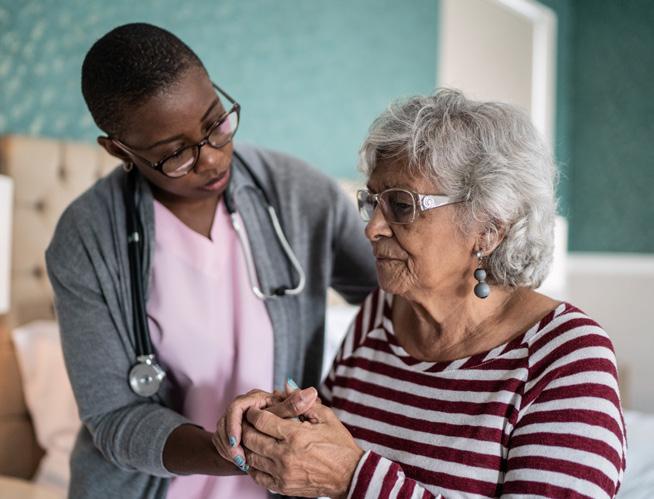
As of March 2022, Alzheimer’s treatments being tested in Phase I or Phase II only have about a 2% success rate of moving into Phase III.*
* Kwon Kim et al., 2022
Behavioral Science Research to support COVID-19 research
HIV I Base to support COVID-19 research
Instituto de Salud Global de Barcelona to support COVID-19 research
McMaster University to support COVID-19 research
Sostento Inc. to support COVID-19 research
State University of Iowa to support COVID-19 research
The Board of Trustees of the University of Illinois to support COVID-19 research
While most of RCF’s grantmaking is focused on our two primary funding areas, we are compelled to address other needs, particularly in areas that don’t receive much attention or where opportunities to leverage other sources of funding create once-in-a-lifetime opportunities.
Over the past two years RCF expanded our funding in Africa, particularly Rwanda and Kenya, from three organizations to fourteen, increasing our total giving from $842,000 in 2021 to $2,555,300 in 2022. These nonprofits are working to create opportunities for children and families in some of the most under-tapped regions of human potential in the world. Year by year, we can see real progress in chipping away what were once quite formidable
economic barriers. In Africa today, more children now have access to food, more (including more girls) are enrolled in school, and more are accessing higher education than ever before.
Closer to home, we fund programs that focus on the most vulnerable and overlooked populations in our communities, including people who suffer from a lack of housing, domestic abuse, or barriers to re-enter society after incarceration or wrongful conviction. Our intention with this funding is to help create a world where everyone can thrive, regardless of their background or circumstances.
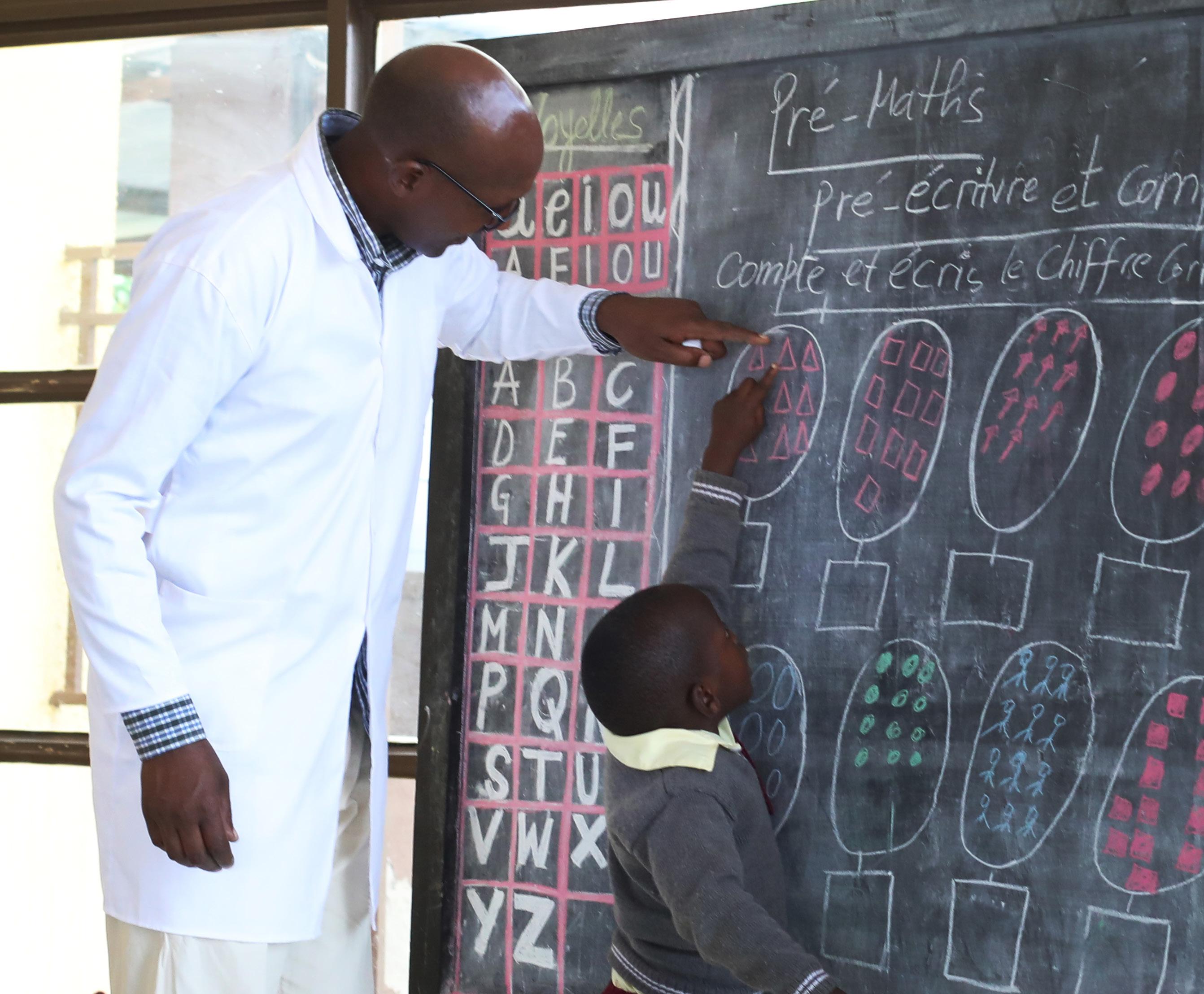
Maranyundo Initiative (MI) was founded in 2007 in partnership with the Benebekira Congregation in Rwanda to provide STEM-focused middle and high school education to girls from financially under-resourced families. Without outside assistance, education beyond 6th grade would be impossible for these students.
The original vision for the Maranyundo Girls School (MGS) was to function as a top-performing, model school. MGS has since developed into a nationally competitive school with 450 students. Recognizing the scale of the challenge for girls to gain education in Rwanda, leaders envisioned that the school could uplift other middle and high schools serving economically disadvantaged children.
In 2020, Maranyundo Initiative began exploring ways for Maranyundo Girls School to provide additional middle and high schools with STEM education and resources, including technology, science lab equipment, and maker spaces.
In 2021 and 2022, The Rainwater Charitable Foundation partnered with MI and the Benebekira Congregation to equip eleven schools in the Benebekira network with computer and internet technology for use in planning, instruction, and research. Access to this technology has effectively increased active instructional time. Rather than writing material on the board for students to copy, teachers are now able to prepare materials prior to class and distribute handouts and to use computers in instruction. This has freed up more time to cover and review content during the academic year.
Maranyundo Iniatitive and the Benebekira Congregation are already impacting 25,000 students and nearly 1,000 teachers across 28 schools and are developing a long-term Learning Hub and Spoke model to extend and deepen impact in the coming years.

Maranyundo Iniatitive and the Benebekira Congregation are already impacting 25,000 students and nearly 1,000 teachers across 28 schools and are developing a long-term Learning Hub and Spoke model to extend and deepen impact in the coming years.
For more information about Maranyundo Initiative please visit www.maranyundo.org
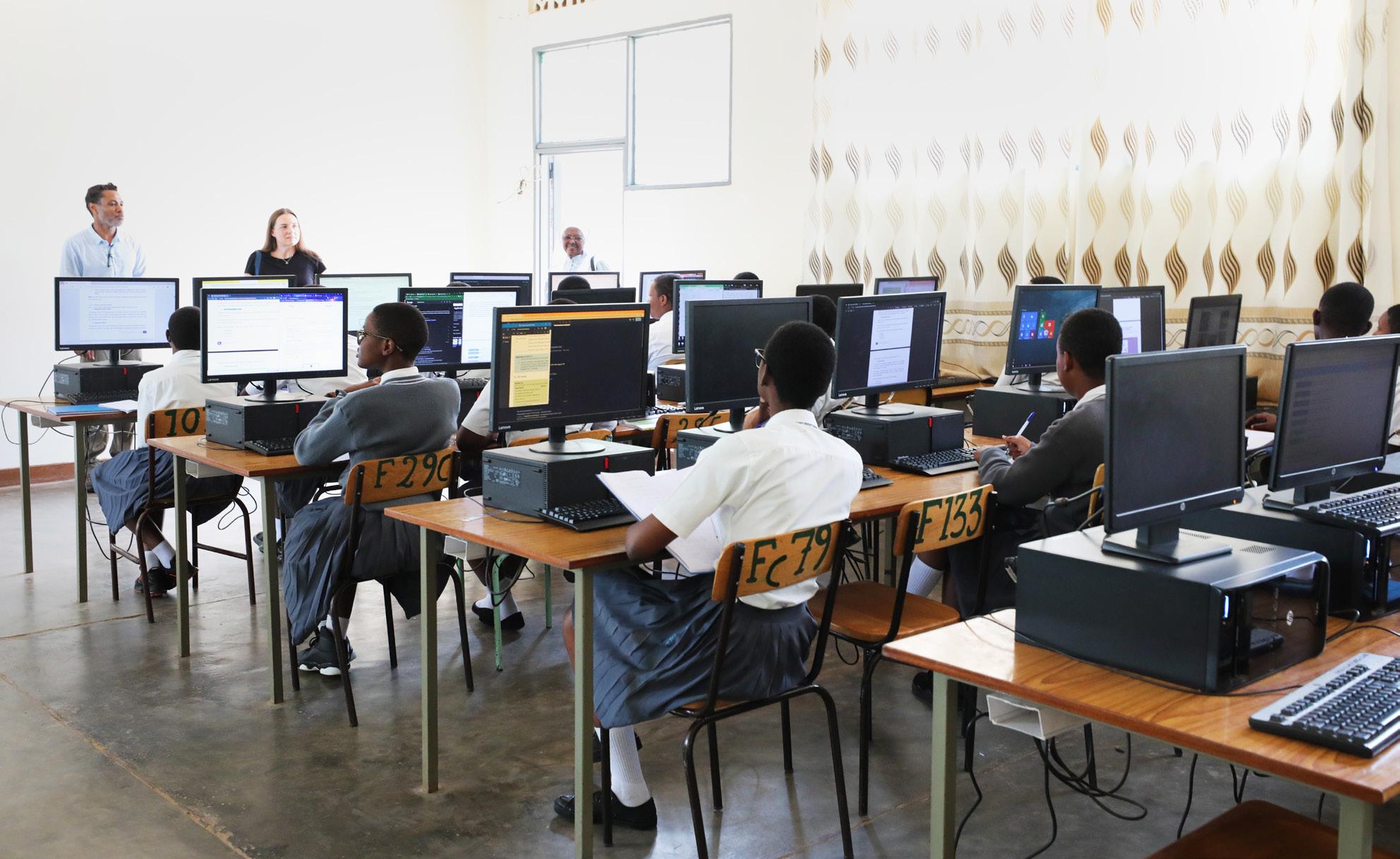
In both his business dealings and his philanthropy, Richard Rainwater consistently focused on nurturing the next generations of leaders, thinkers, and problem-solvers. In that spirit, we chose to honor Richard’s legacy and to acknowledge the foundation’s 30th anniversary by investing in the future and helping students pursue higher education. To celebrate this milestone, RCF awarded scholarships to thirty Fort Worth-area students from the class of 2022.
In reviewing the 250 applications that were submitted, we considered the following characteristics that exemplify a Rainwater Scholar:
Rainwater Scholars are passionate about helping others and creating social good within their school and broader community.
High Motivation: Despite any challenges they have faced, Rainwater Scholars are internally driven to achieve their goals.
Commitment
Rainwater Scholars are committed to their studies and demonstrate their commitment by taking a challenging course load.
The selected scholars demonstrated these characteristics through a diverse array of achievements and experiences in leadership ranging from advocacy within their school communities to international service projects. We are deeply inspired by these students and believe in their potential to make a positive impact on their lives and the lives of others. Each of the selected scholars received an award of $10,000, and they have gone on to pursue academic and leadership opportunities at institutions ranging from Howard University to the University of Notre Dame.
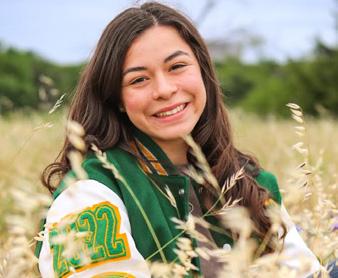


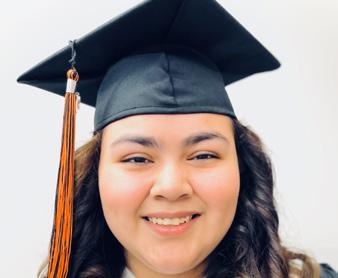
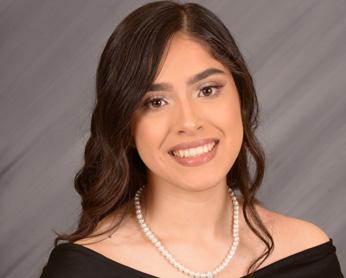

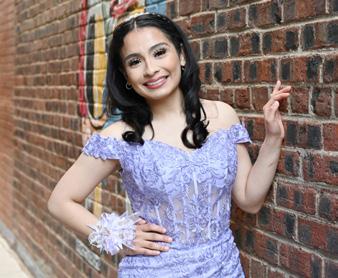

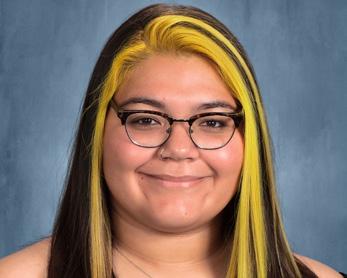
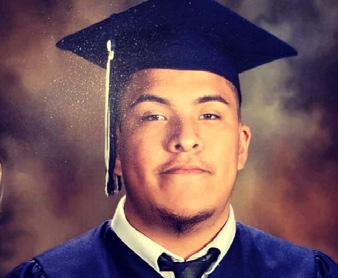
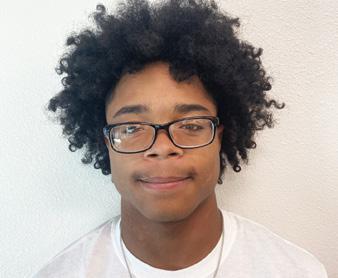
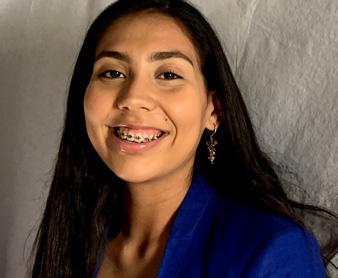
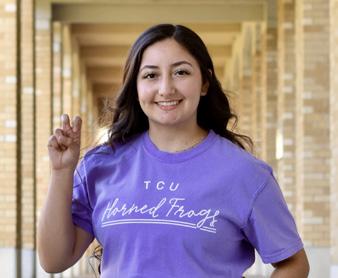
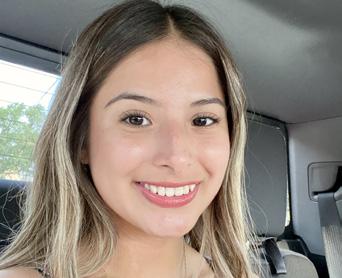
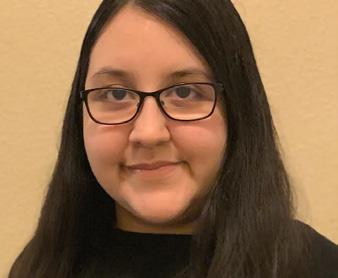
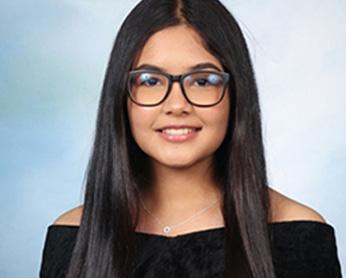
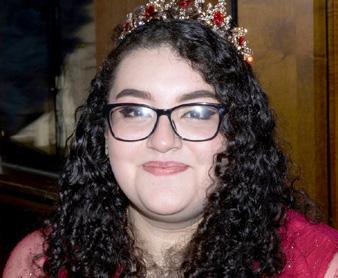


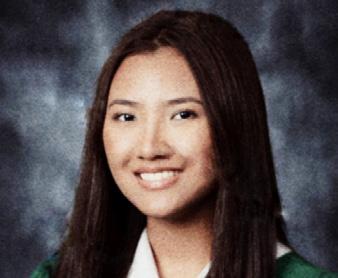

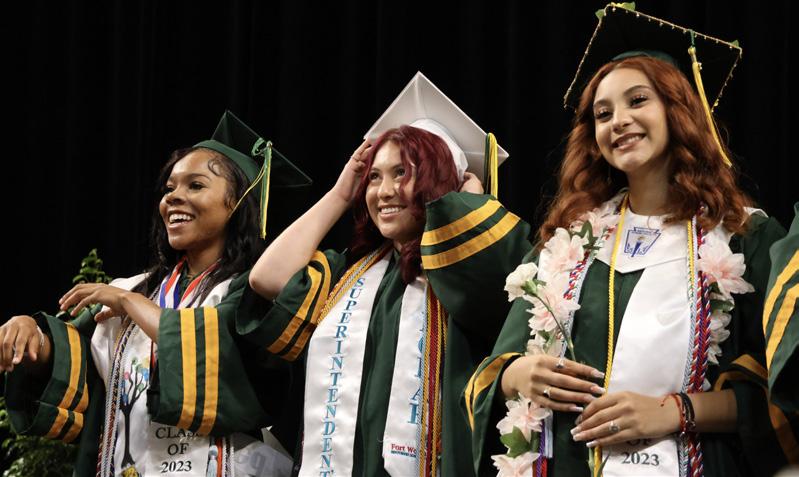

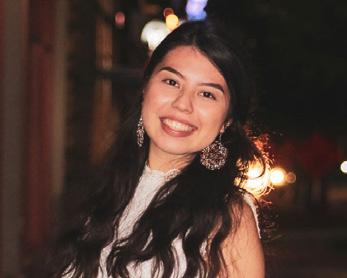
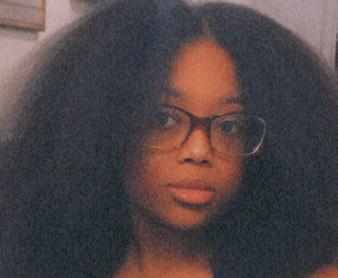
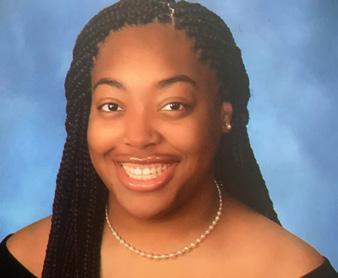

HS (FWISD)
Adriana Coronado, OD Wyatt HS (FWISD)
Alondra Oropeza, Trimble Technical HS (FWISD)
Amaya Gusman, IM Terrell Academy for STEM & VPA (FWISD)
Anaya
To ultimately help patients and defeat neurodegenerative diseases, there must be investment in the next generation of innovative scientists. Through the 30th Anniversary Rainwater Tau Leadership Fellows Program, RCF made a significant $300,000 investment into the next generation of tauopathy researchers. The program launched with an open call for nominations in July 2021, where applicants, who were either postdoctoral researchers or graduate students pursuing either a PhD or MD/PhD in the neurogenerative disease research field competed for one of thirty available fellowships.
We received almost 100 applications from postdoctoral researchers and graduate students across the United States, which were evaluated based on the applicant’s research goals and progress, as well as their leadership, mentorship, community engagement, and civic impact outside of the laboratory. The thirty selected fellows represented both emerging leaders in scientific discovery and a demonstrated commitment to community engagement and growth of the next generation of leaders in research and beyond.
Each 30th Anniversary Rainwater Tau Leadership Fellow received a $10,000 grant to be used to further his or her professional development in tauopathy research. In addition, all the fellows were invited as guests of the foundation at the Tau2022 Global Conference.
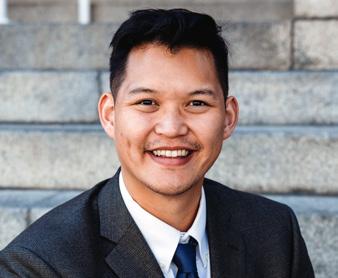
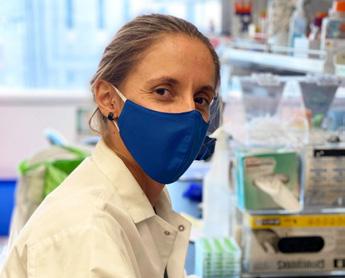
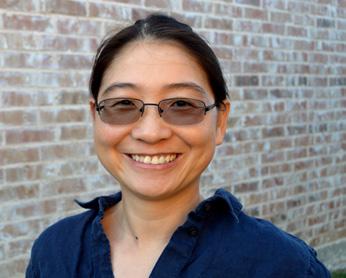

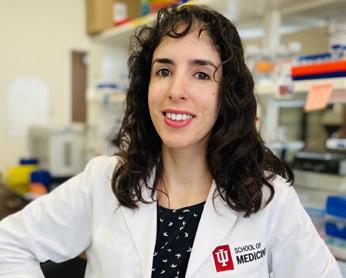
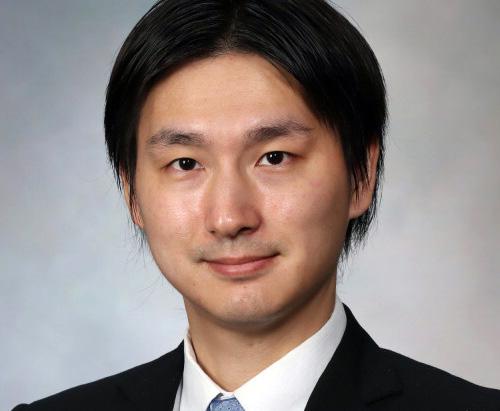
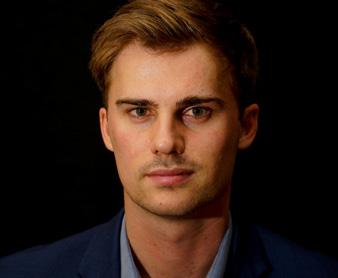


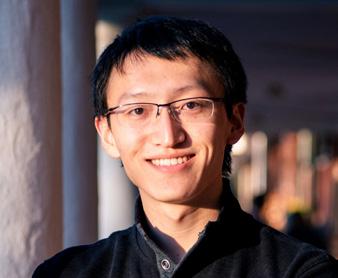

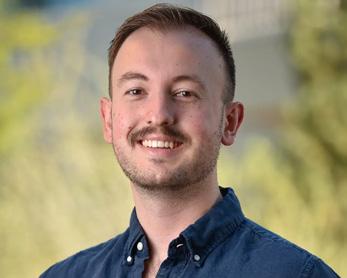


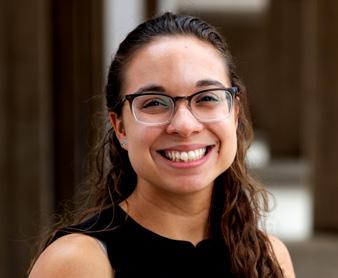
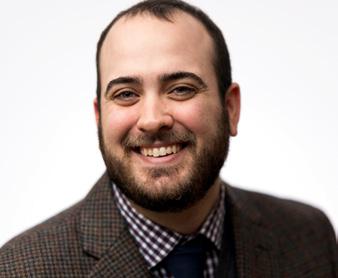
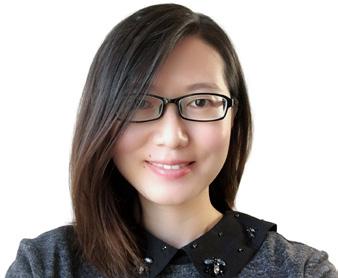
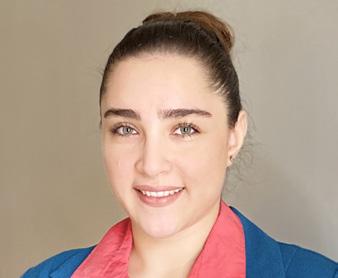

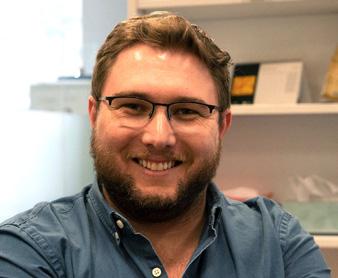

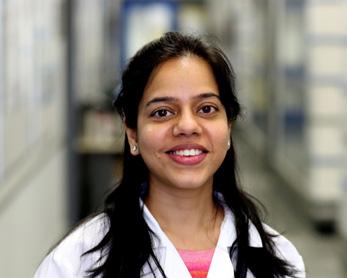


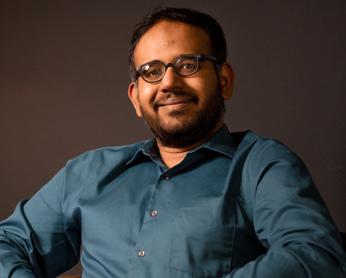
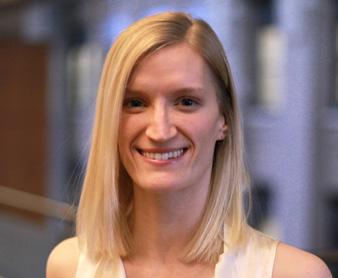
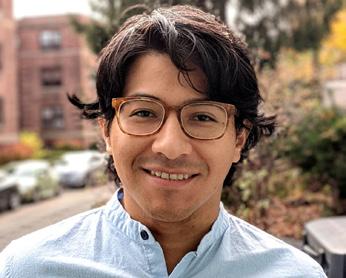

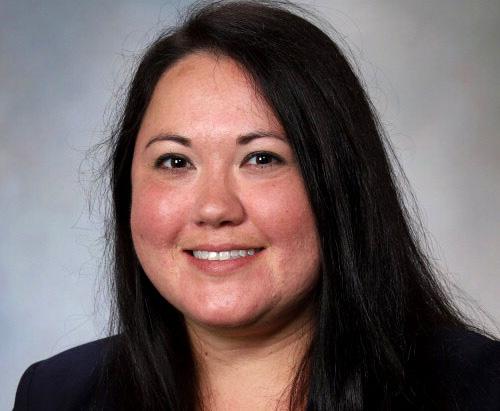
30th
The Rainwater Charitable Foundation engages in numerous activities with the intent of uniting our team in giving and in living out our core values. Richard Rainwater (RER) was a successful investor, but perhaps more importantly, he was known for working in a particular way – valuing partnerships, approaching philanthropy with humility, and exhibiting a conviviality that was contagious. When he passed away in 2015, Mr. Rainwater had given more than $380 million to organizations working for the benefit of higher education, at-risk children, and research associated with degenerative neurological diseases.
One of the activities the RCF team engages in is our annual RER Volunteer Day. In 2022, after a pause during the pandemic, the RCF team worked with FWISD’s Bill J. Elliott Elementary School to remodel their teacher’s lounge, with our team providing the materials and labor to complete the project. It was a memorable day for Bill J. Elliott’s remarkable teachers, and it was a very special day for the RCF team as well.
The 2022 RER Volunteer Day was one of the last activities that Randy Kim, the foundation’s CIO, was able to attend with the team. Sadly, we lost Randy in April of 2023 after a valiant but heartbreaking battle with cancer. Randy’s eccentric humor, passion for investing, and dedication to the foundation will be greatly missed by everyone at RCF.
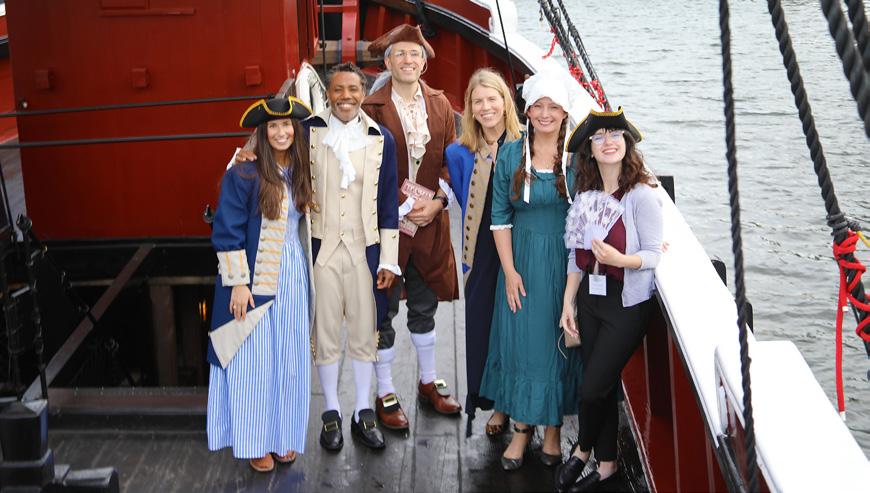
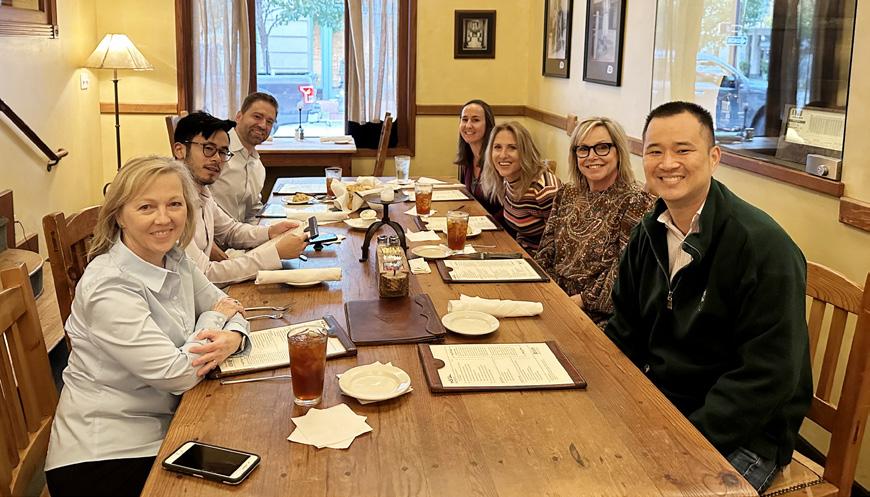

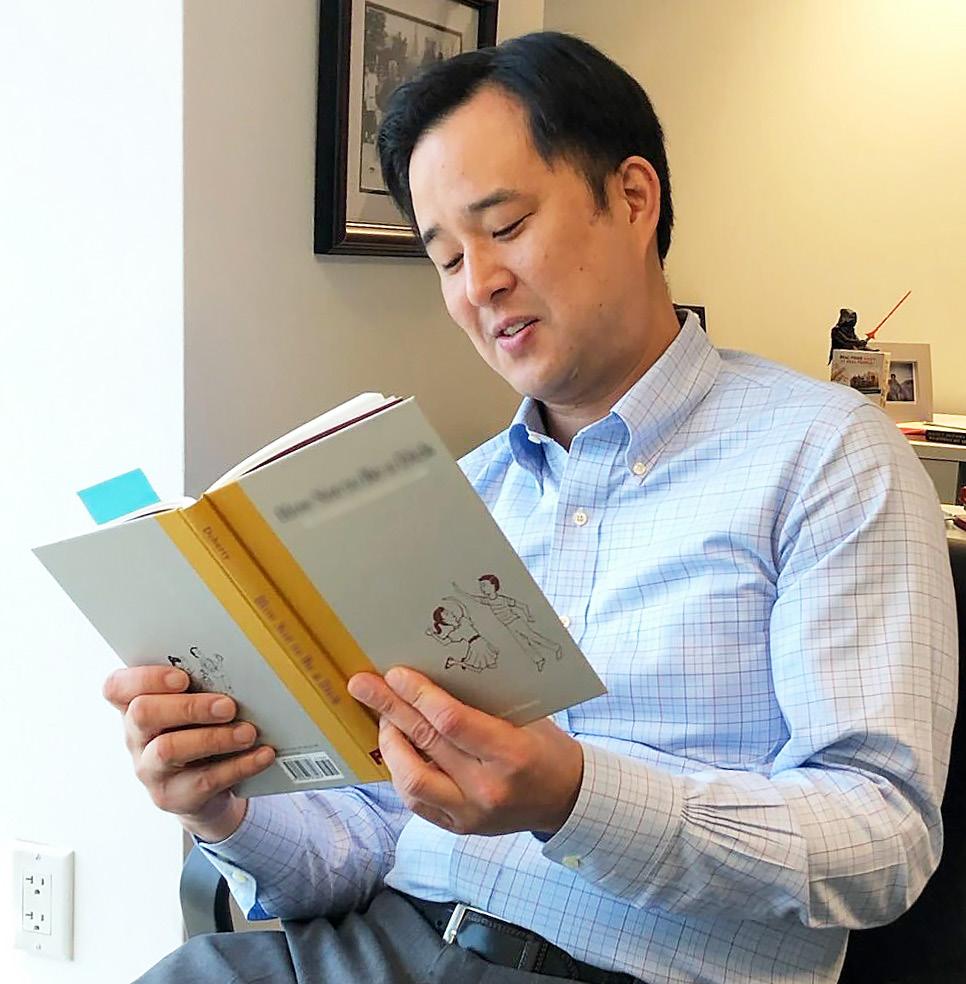
Our staff and investment committee recommended gifts to 52 organizations, totaling $1,270,000 in 2021 and 2022.
Bridge2Rwanda to support various programs that invest in young talent in Rwanda
Christian Relief Fund to support the construction of schools and provide supplementary nutrition in Kenya
Food for Education to support nutritional programs in Kenyan primary schools
Global Health Corps to support development of the health workforce in Africa
Kakenya’s Dream to support girls’ education and youth empowerment in rural Kenya
Kenya Education Fund to support secondary school scholarships in Kenya
Kesho Kenya to support child protection and education programs in Kenya
Komera to support girls’ secondary education and empowerment in Rwanda
Maison Shalom to support technical and vocational education for youth in Rwanda
,000
250,000
Rwanda School Project to support secondary school educational programs in Rwanda
The Kilgoris Project to support pre-primary and primary education in rural Kenya
The Maranyundo Initiative to support use of technology in education in primary and secondary schools in Rwanda
Ubongo International to support early numeracy, literacy, and social-emotional edutainment in Africa
Worldreader to support parental engagement in reading practices of 3rd graders in Kenya
,
75,000
During the 2021/22 school year, there were 4,159,782 learners in all levels in Rwanda, which represented 31.4% of the total population. The percentage of female students was 50.7%. Government subsidized schools have the highest number of students, 52.2% of the total students.*
* Rwanda Ministry of Education, 2021/22 Education Statistical Yearbook
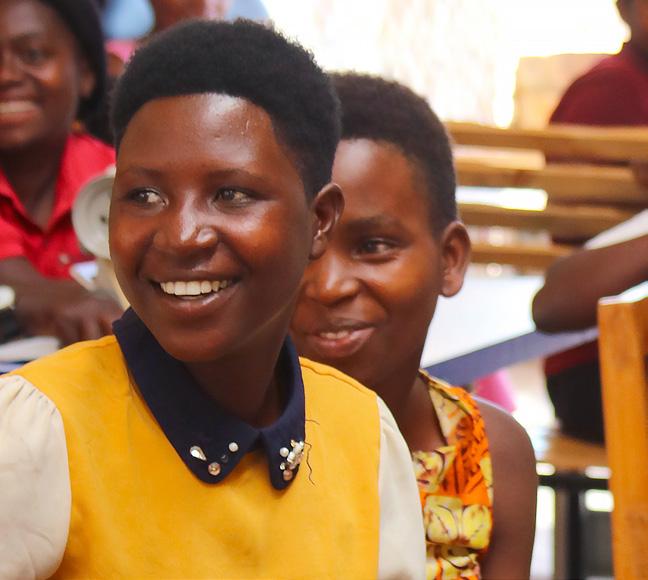
RCF provides staff and Investment Committee (IC) members the opportunity to recommend gifts to nonprofits that do great work for others. These staff and IC recommended gifts are listed below.
James L. West Center for Dementia Care
James L. West Center Scholarship for Day Program
Massachusetts Institute of Technology MIT Solve Membership
Metro Dallas Homeless Alliance
Dallas R.E.A.L. Time Rapid Rehousing Initiative (DRTRR)
Miles of Freedom Programs to empower formerly incarcerated individuals
Military Warriors Support Foundation Transforming the lives of combat-wounded veterans and Gold Star spouses
North Texas Community Foundation Fund to Advance Racial Equity
North Texas Community Foundation Launching Catchafire, an online resource connecting nonprofits with capacity building volunteer professionals
North Texas Community Foundation General Operating Support
North Texas Community Foundation Star-Telegram Crossroads Lab
On Being Project
Fostering conversations that nourish learning and growth, newness, and evolution through radio, and the Internet and within communities
Patriot PAWS Service Dogs Service dogs for
Piney Woods Golf Youth and Development Foundation Operating Support
Small Friends on Nantucket Inc. General Operations Support
Smithsonian Institution Anacostia Community Museum
Step Onward Foundation Stepping Up with Step Onward: Building a Foundation for Scalability through Data-Driven Practices
Tampa General Hospital Foundation Inc. Memorial Gift for Cancer Institute - May Ann Harris
Texas Christian University COVID-19 research
Texas Tribune Public-Service Journalism including Social Justice Coverage
Texas Wounded Warrior Foundation Mira Vista Warrior Pro-Am at Ft. Worth and Tyler Wounded Warrior Pro-Am at Willow Brook Country Club
The Dallas Foundation RevJen - To Support North Texas Nonprofits
The Dallas Foundation The Racial Equity Fund at The Dallas Foundation
The Desmoid Tumor Research Foundation Furthering the Desmoid Tumor Research Foundation’s Growth through Development
United Way of Tarrant County COVID-19 research
Wings of Hope Equitherapy Provide The Partnership
Other Funding
,
December 31, 2022, and 2021
Years ended December 31, 2022, and 2021
The Rainwater Charitable Foundation would like to express our appreciation to the following partners for generously providing permission for many of the images included in this annual report:
Fort Worth Independent School District
Komera
Leadership Academy Network at Texas Wesleyan University
Maison Shalom
Tarrant To and Through Partnership
The Maranyundo Initiative
We’d also like to give special thanks to our grantee partners, donors who have funded alongside our efforts, friends of Richard Rainwater, and other supporters of The Rainwater Charitable Foundation. Your partnership and commitment make a significant difference in our ability to create lasting change and reaffirm our belief in the power of collective action.

Finally, we’d like to acknowledge Richard Rainwater, whose legacy and spirit live on in both local efforts to support children and families and global efforts to advance neurodegenerative disease research.
We look forward to continuing our journey together as we work toward building a brighter future for all.
